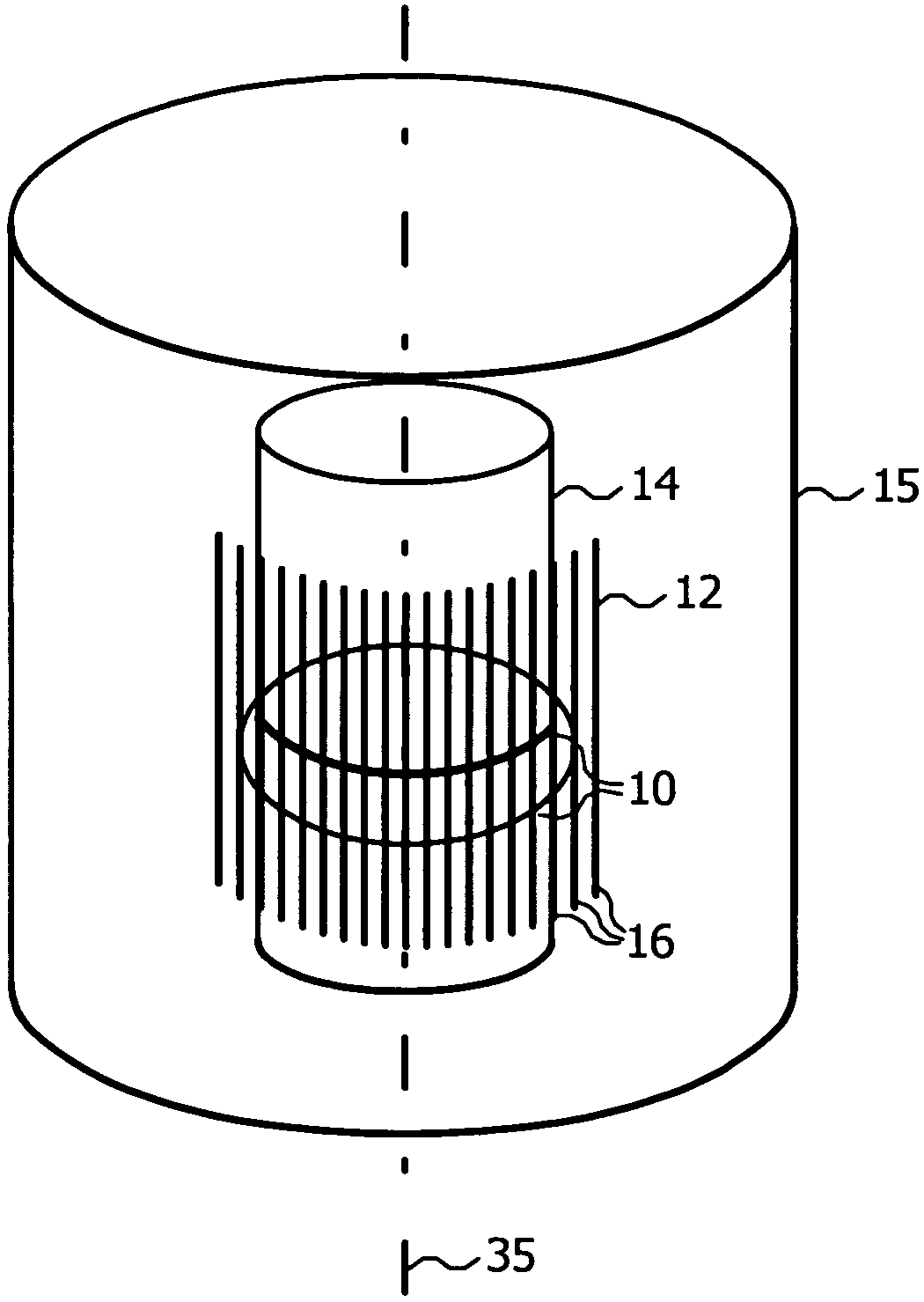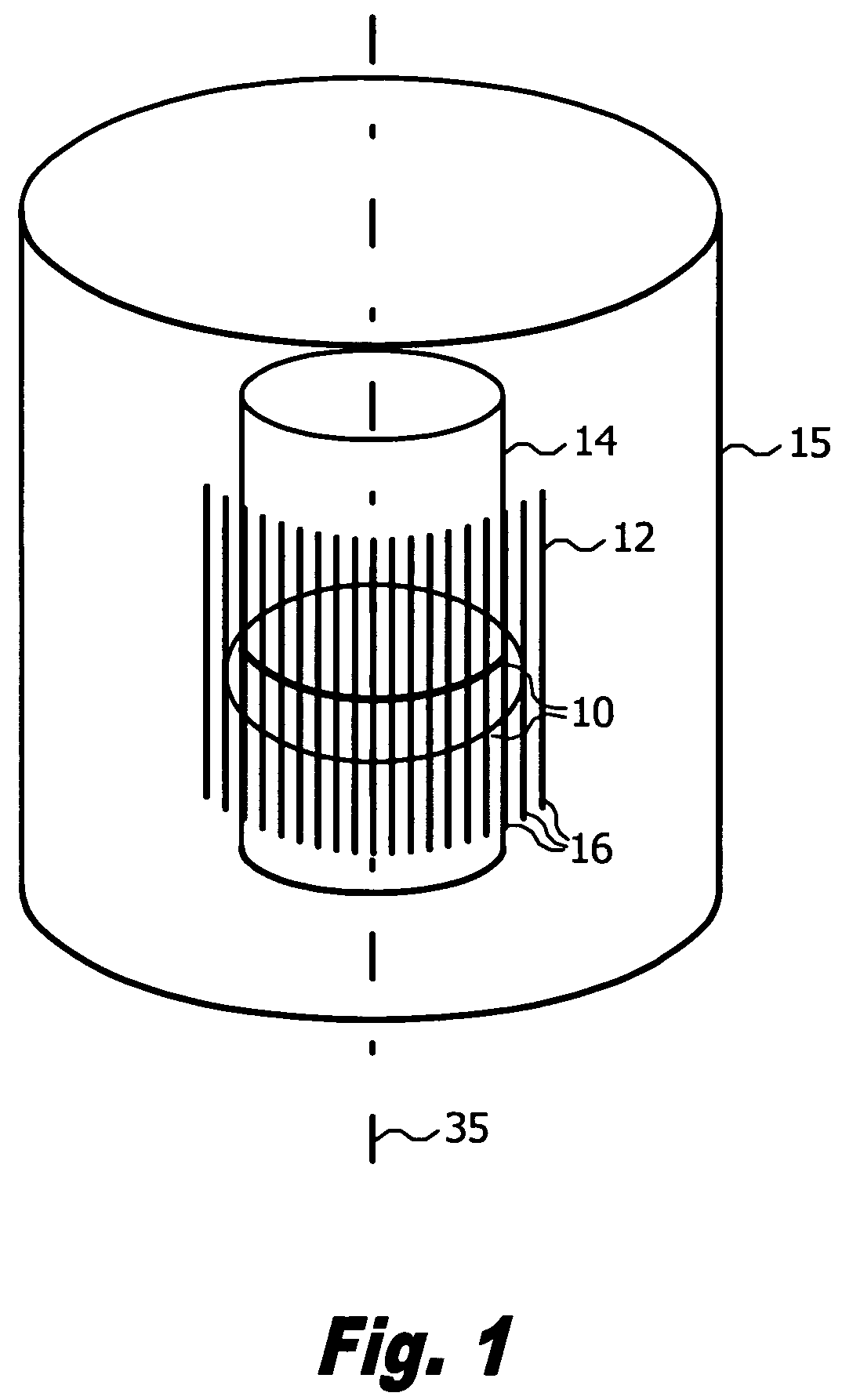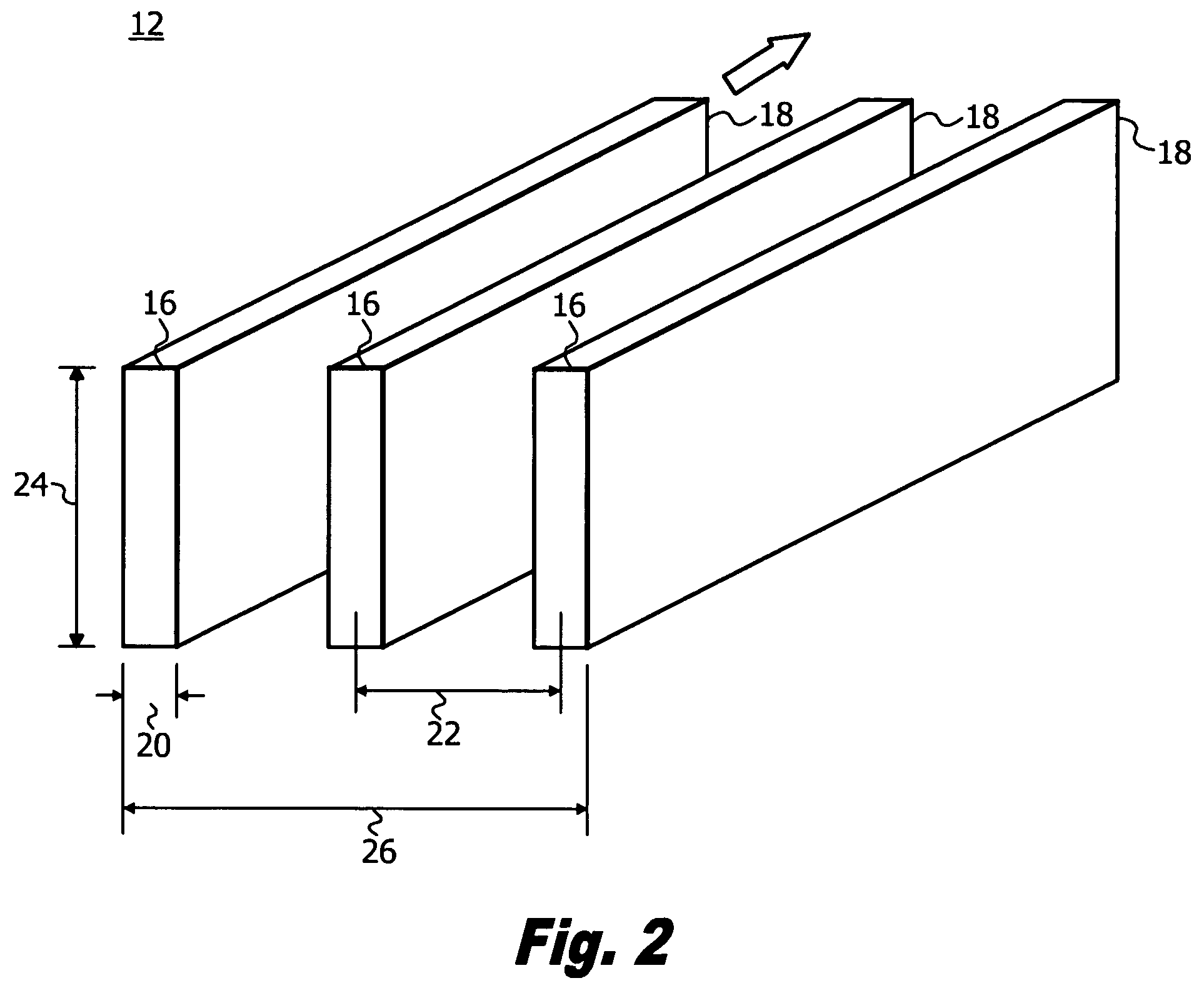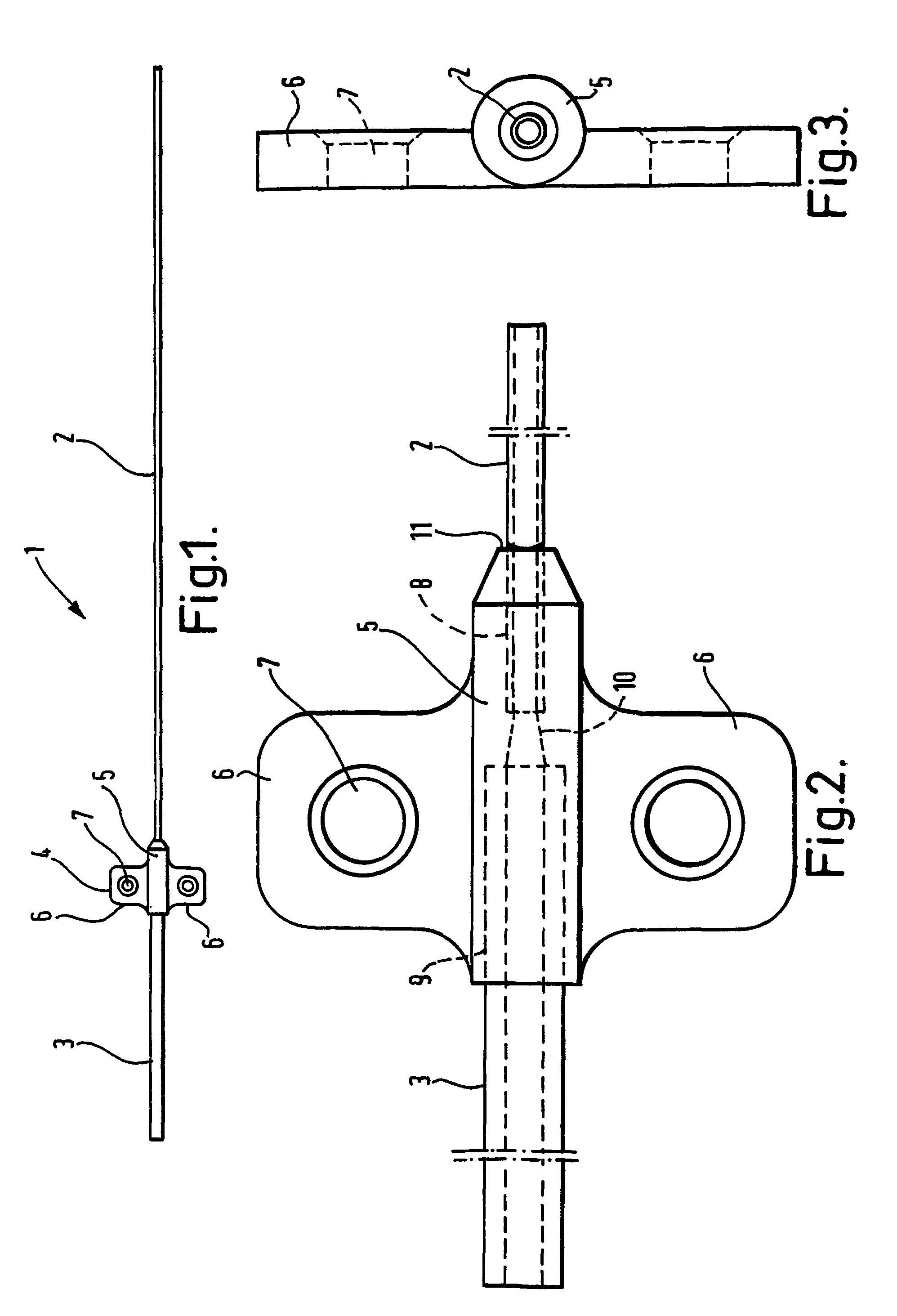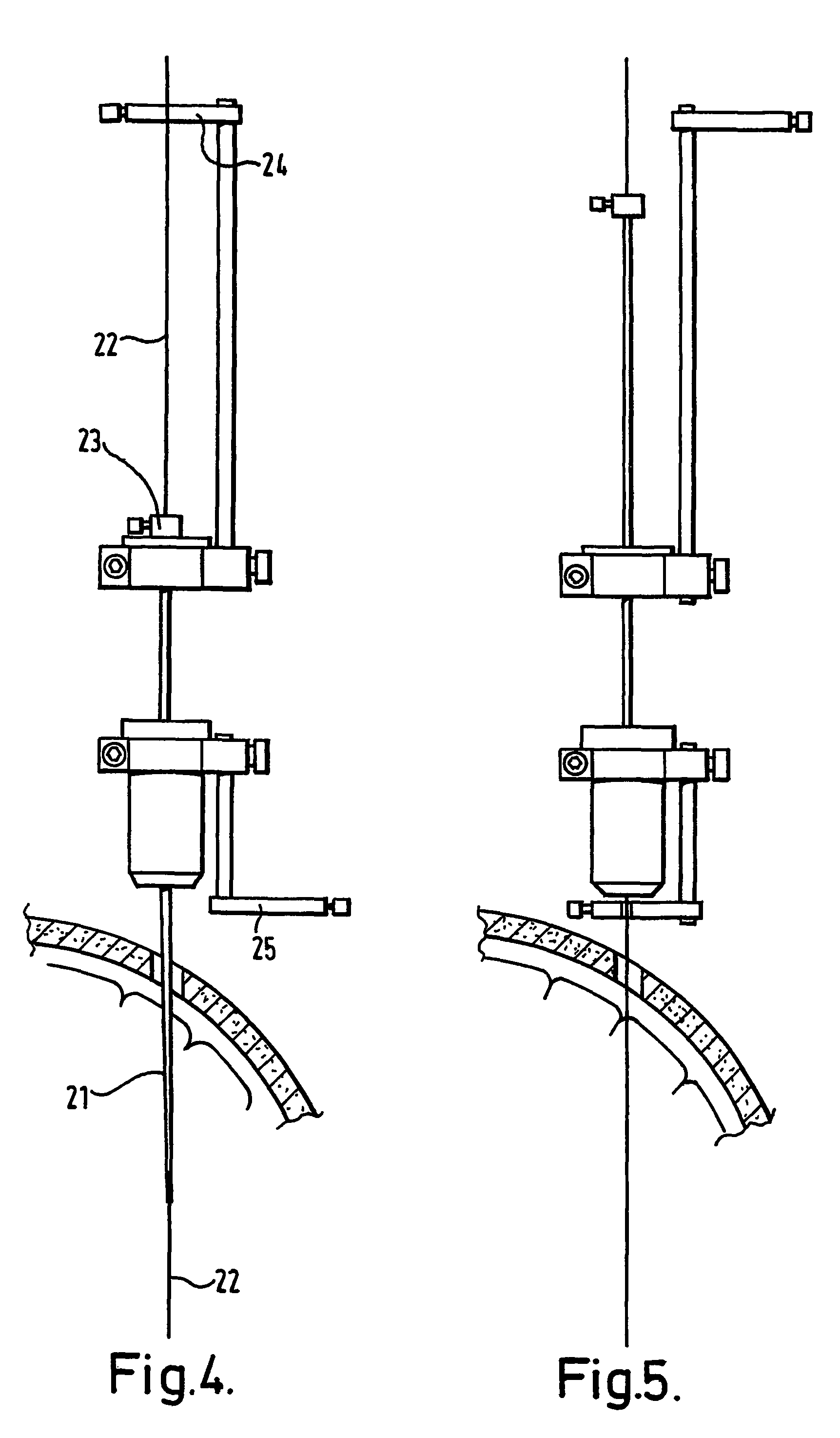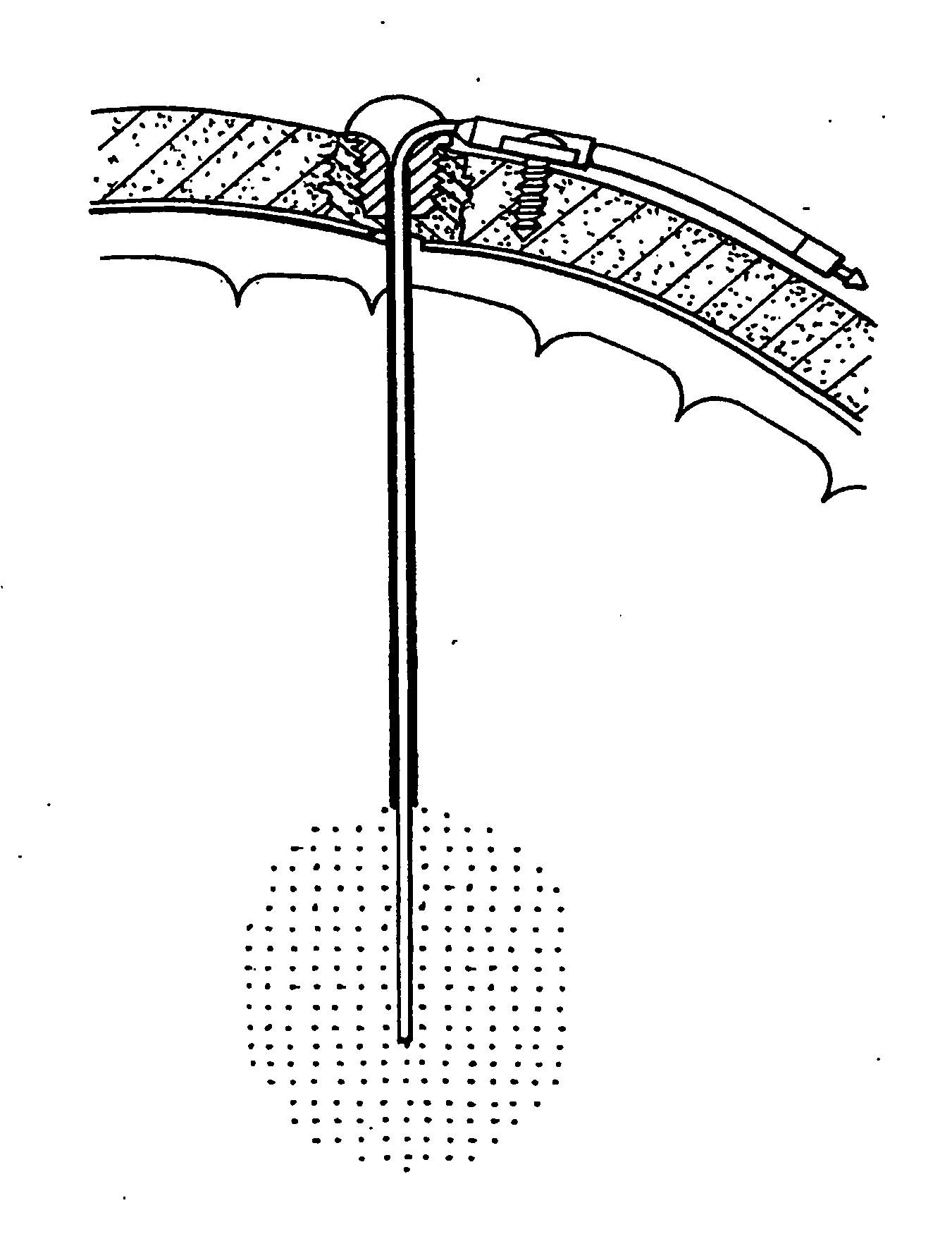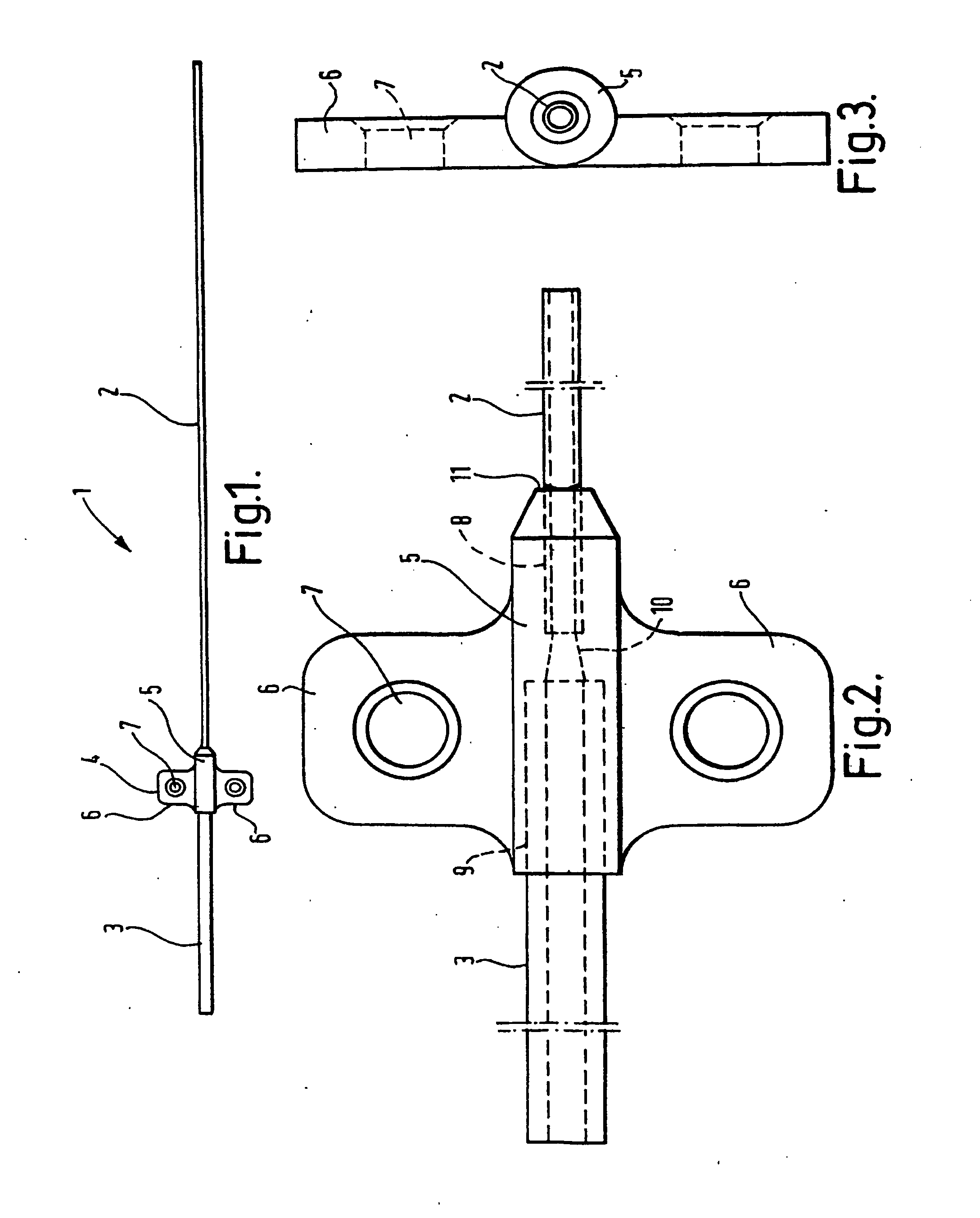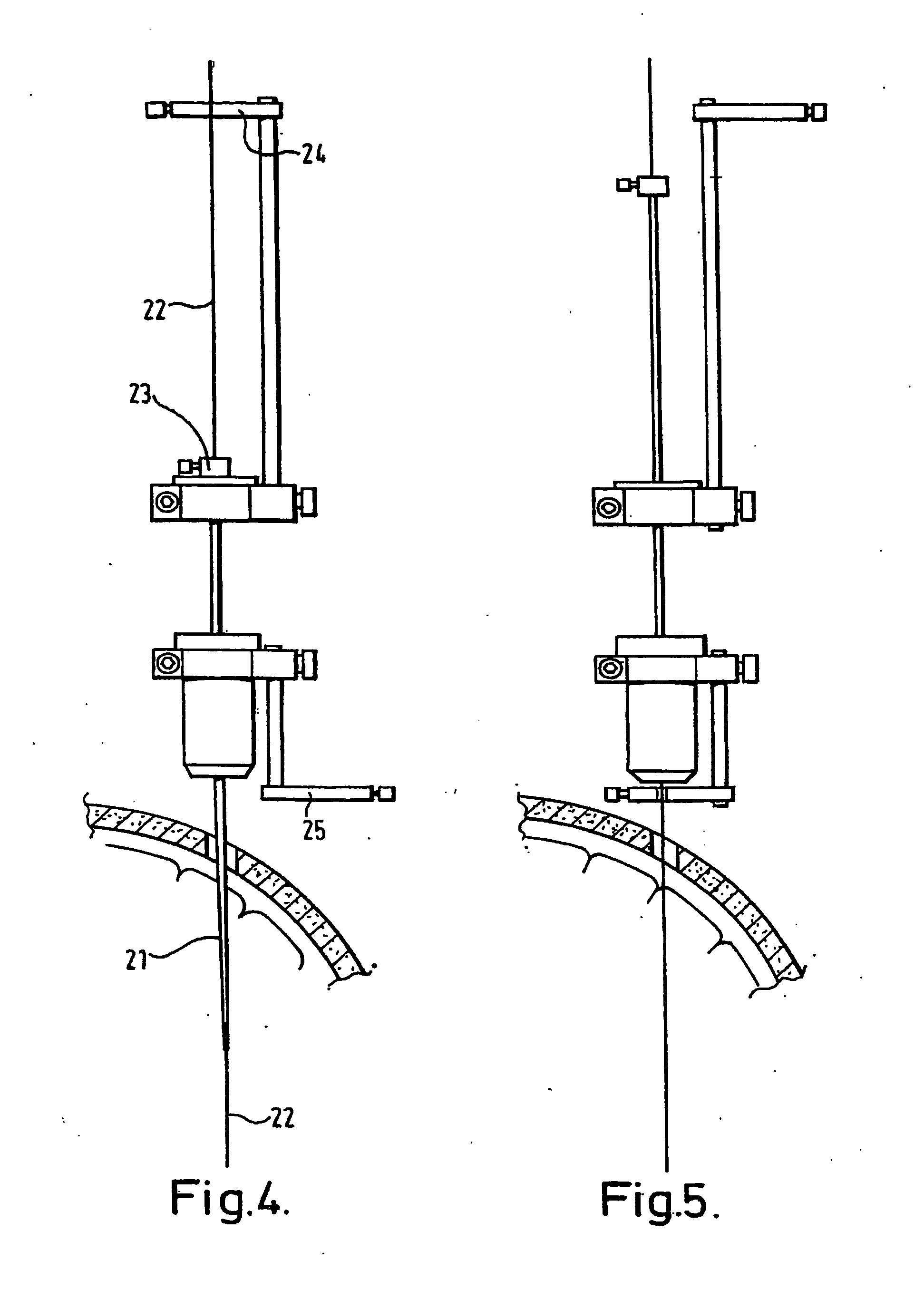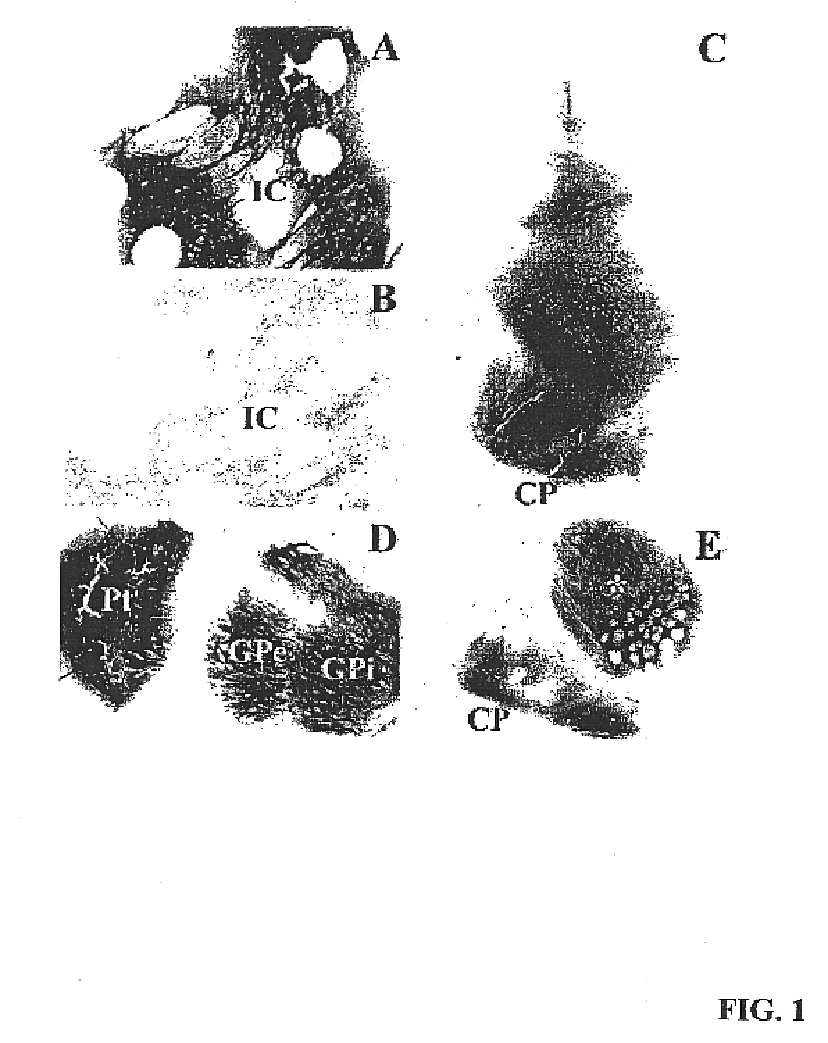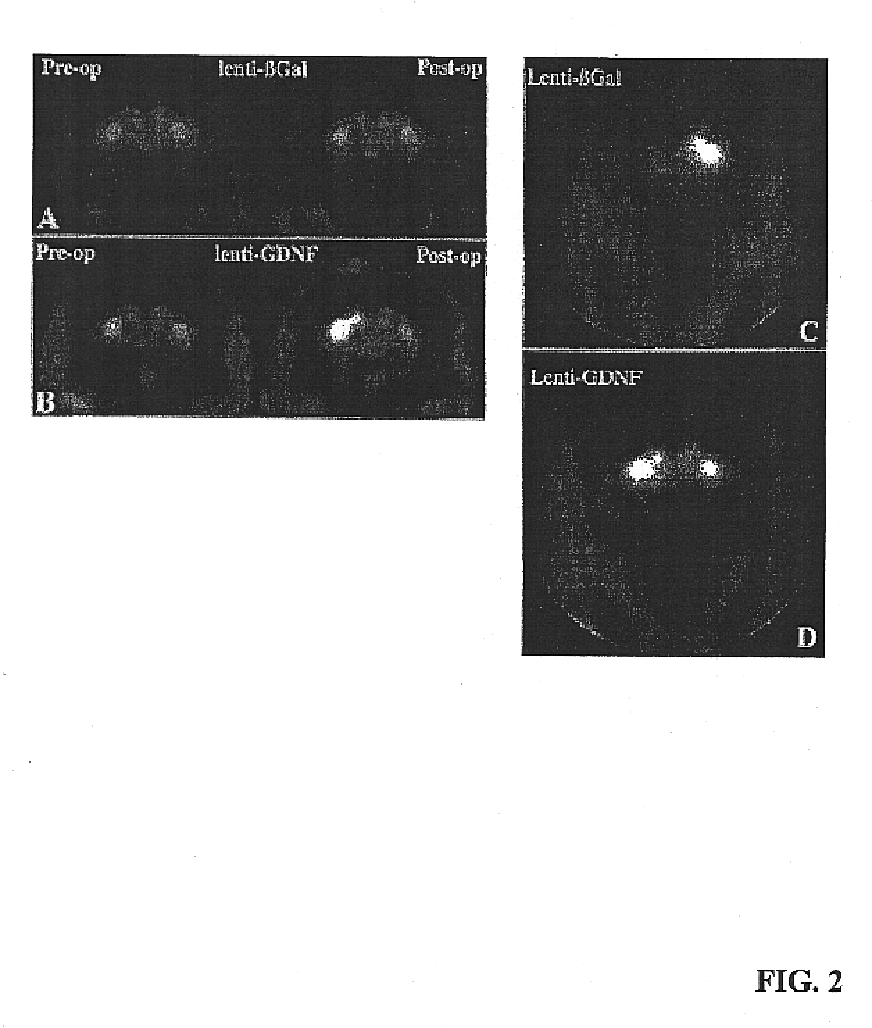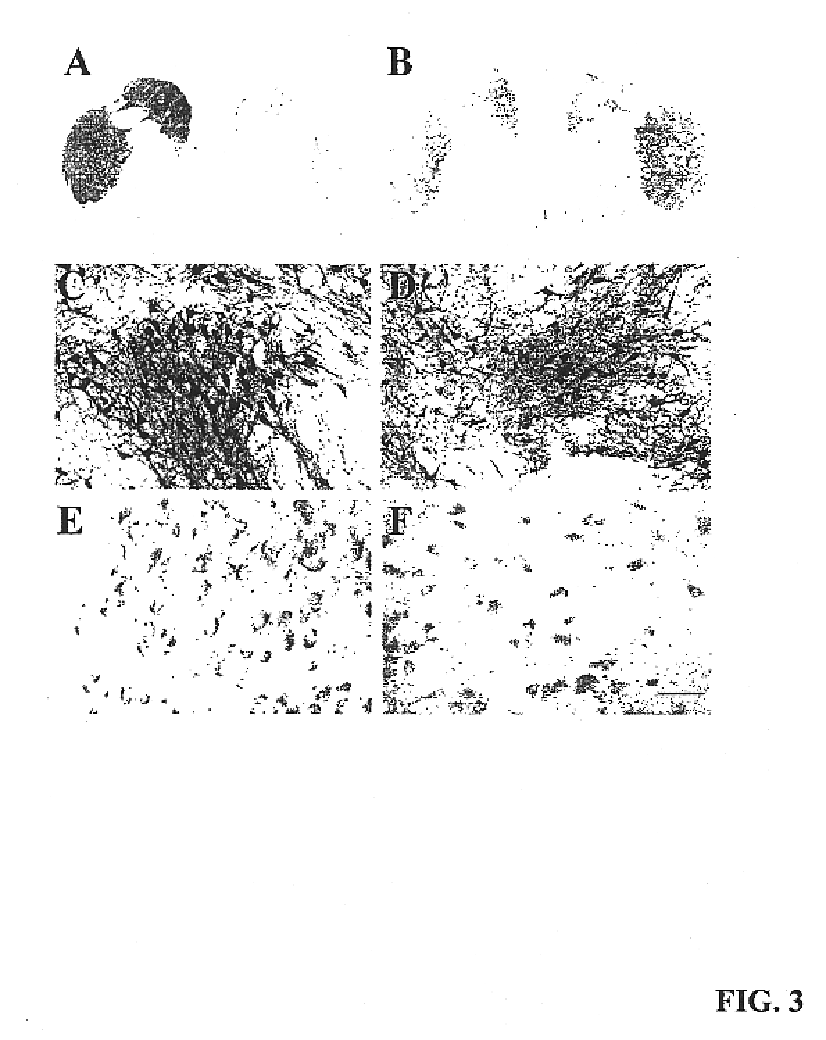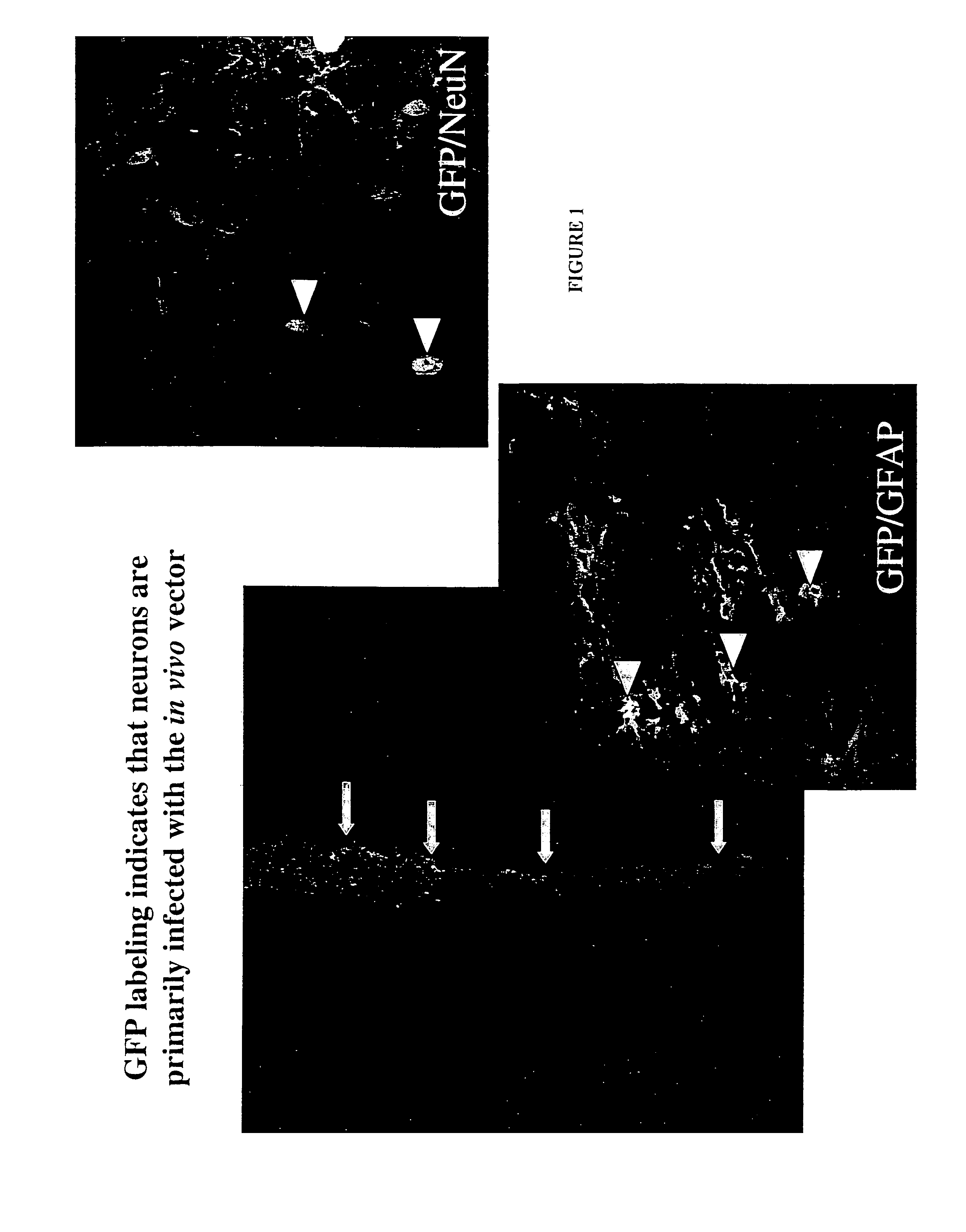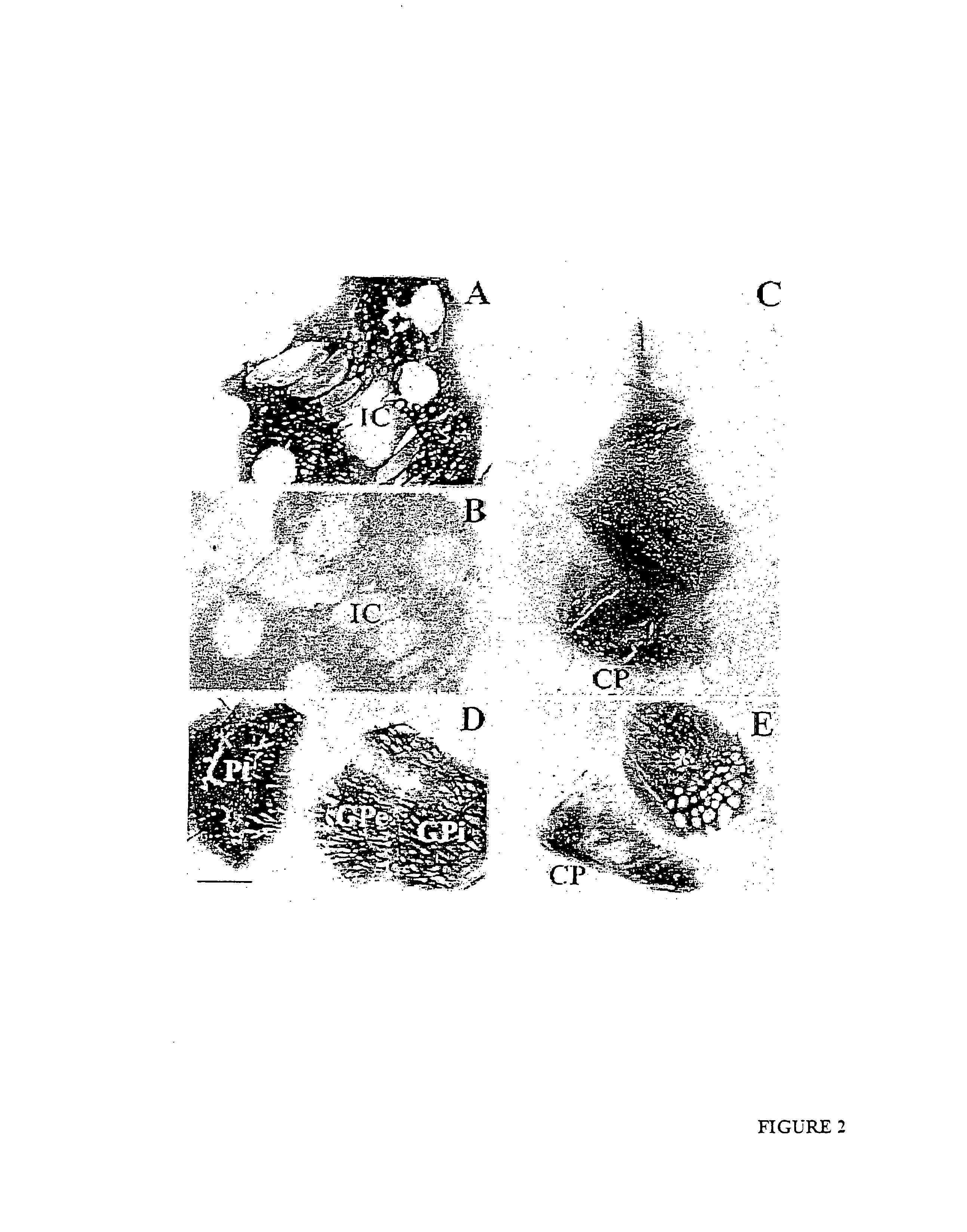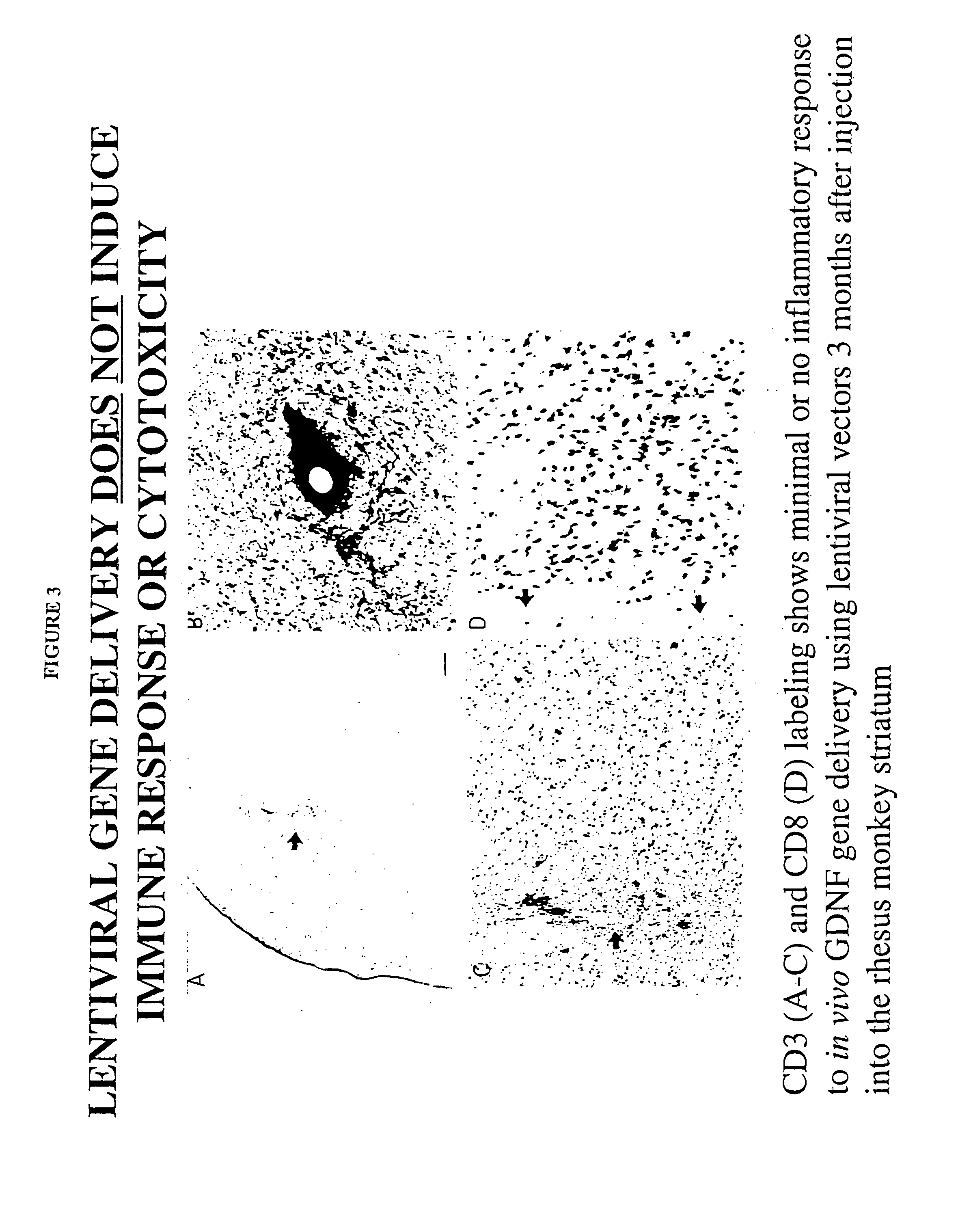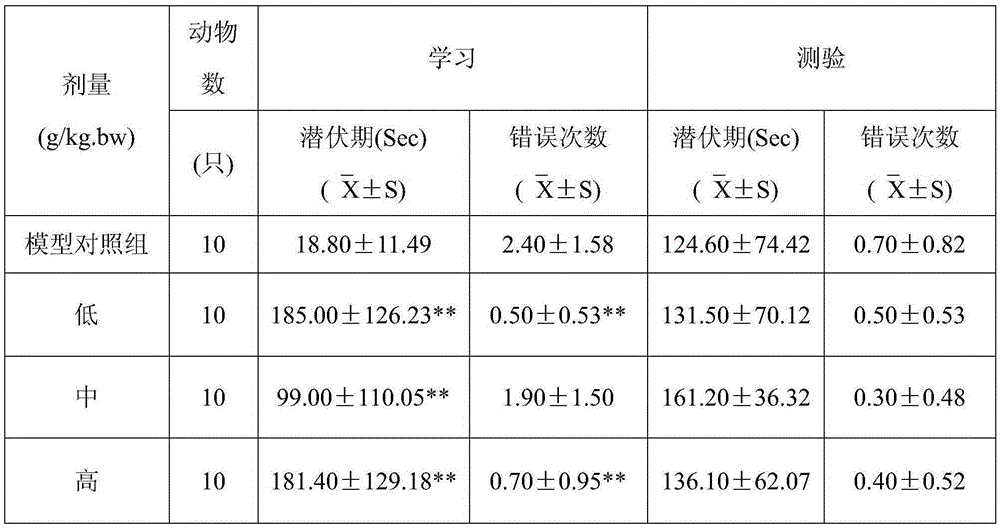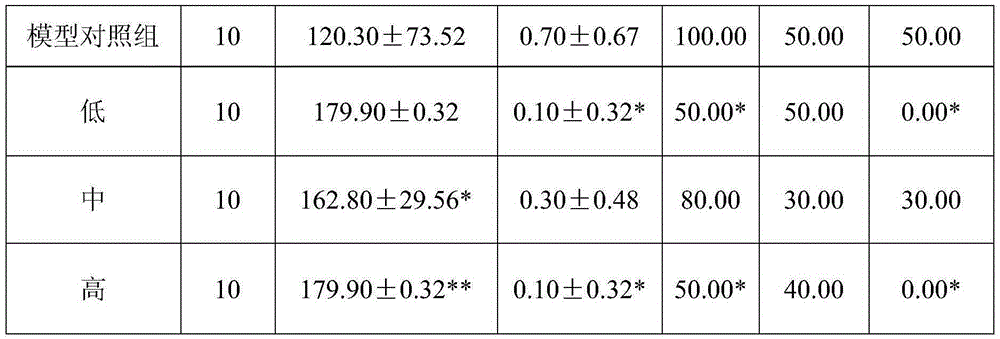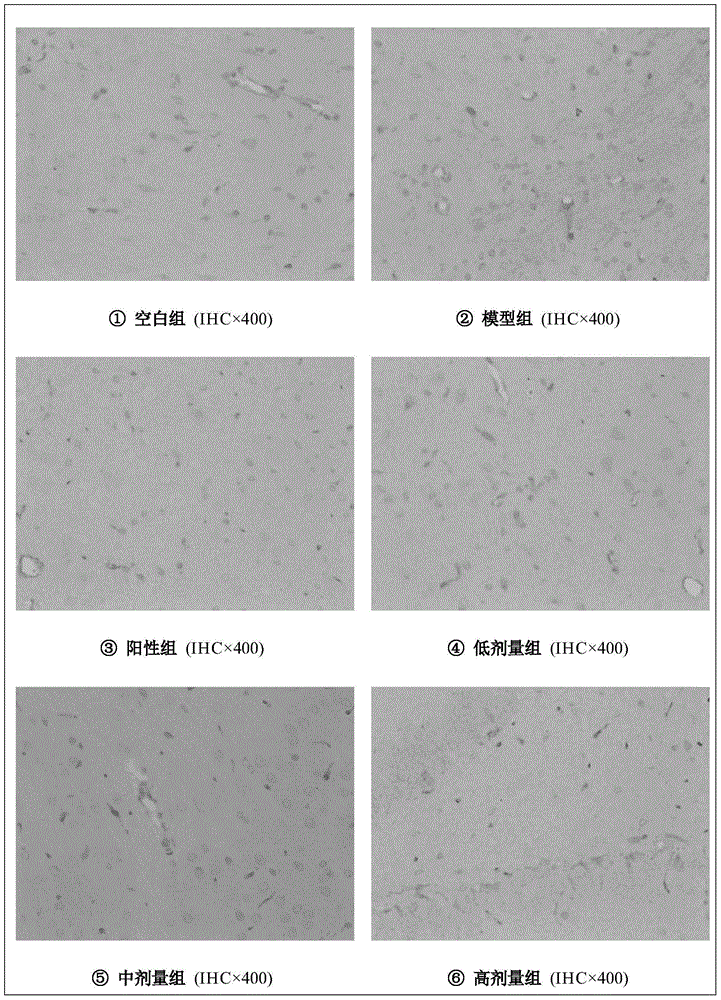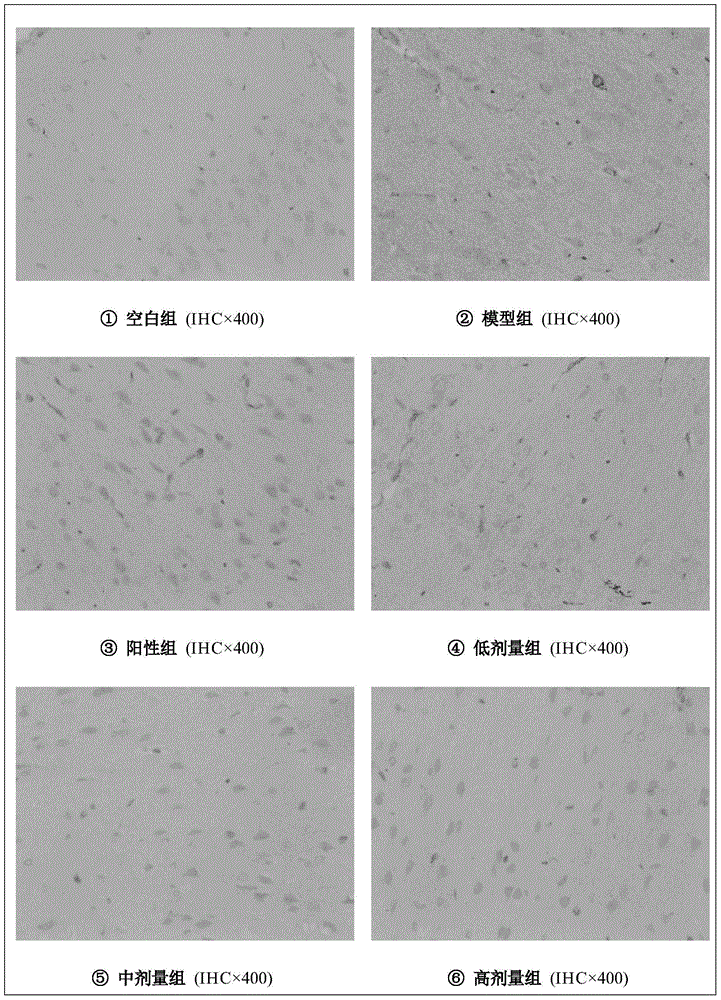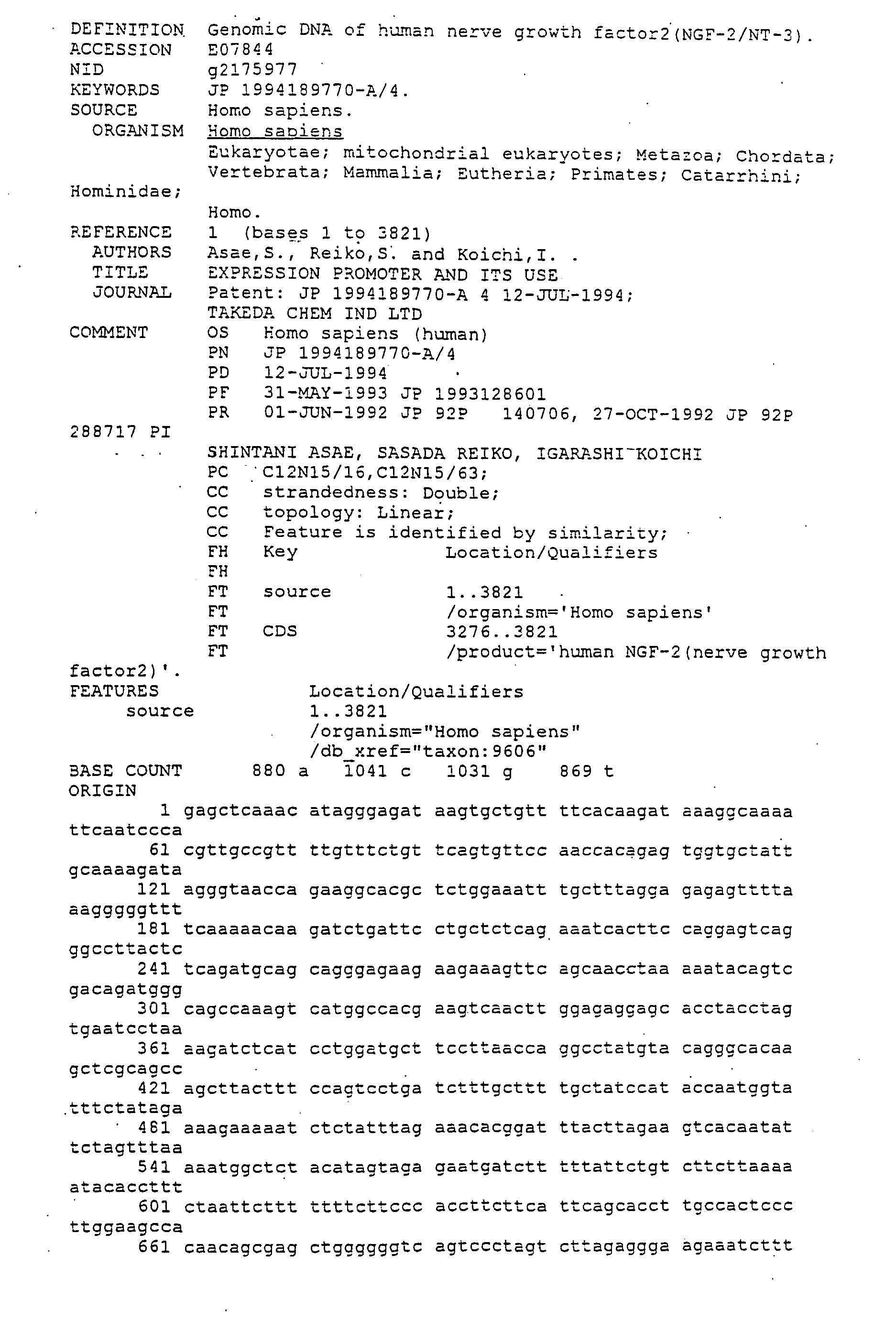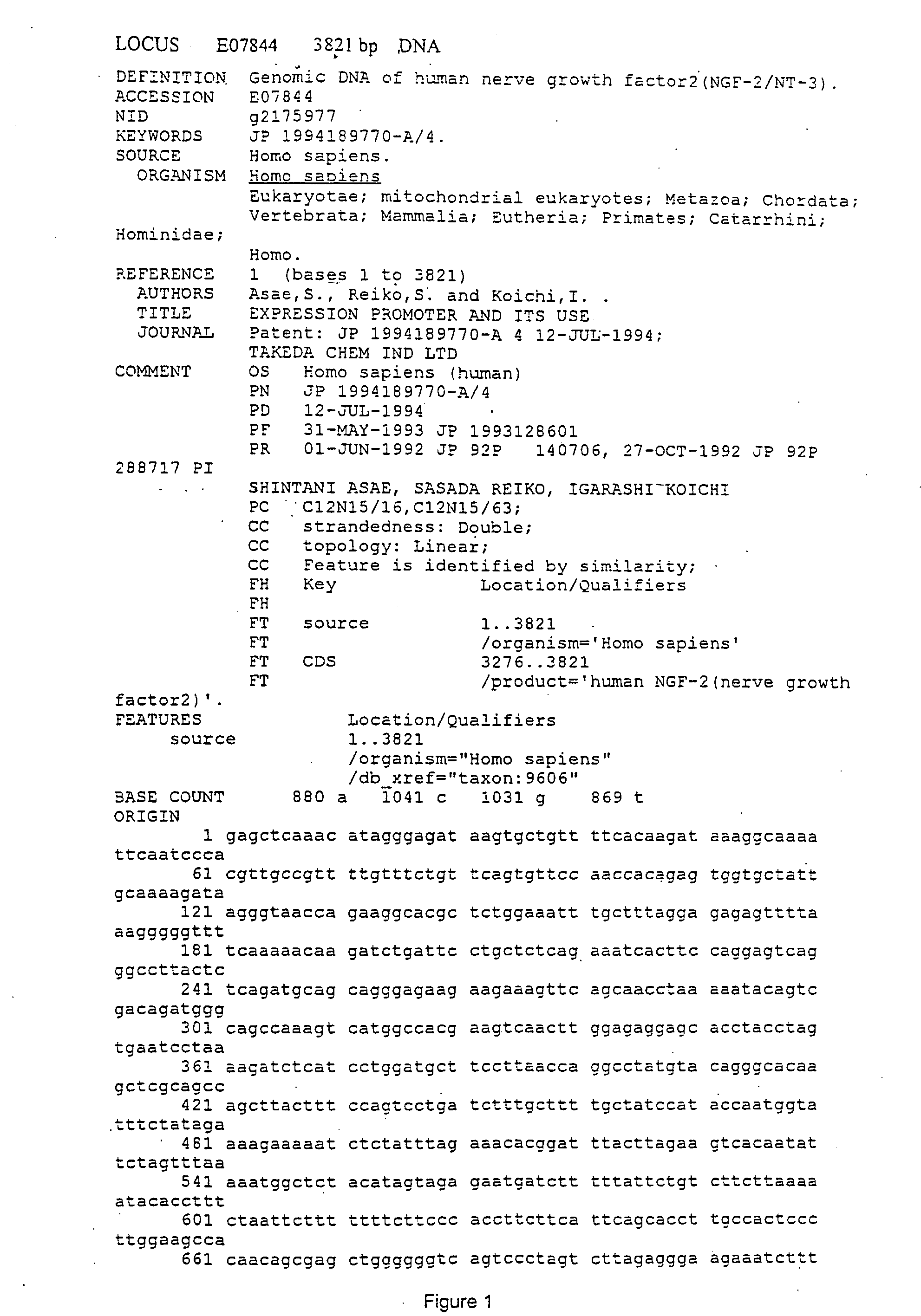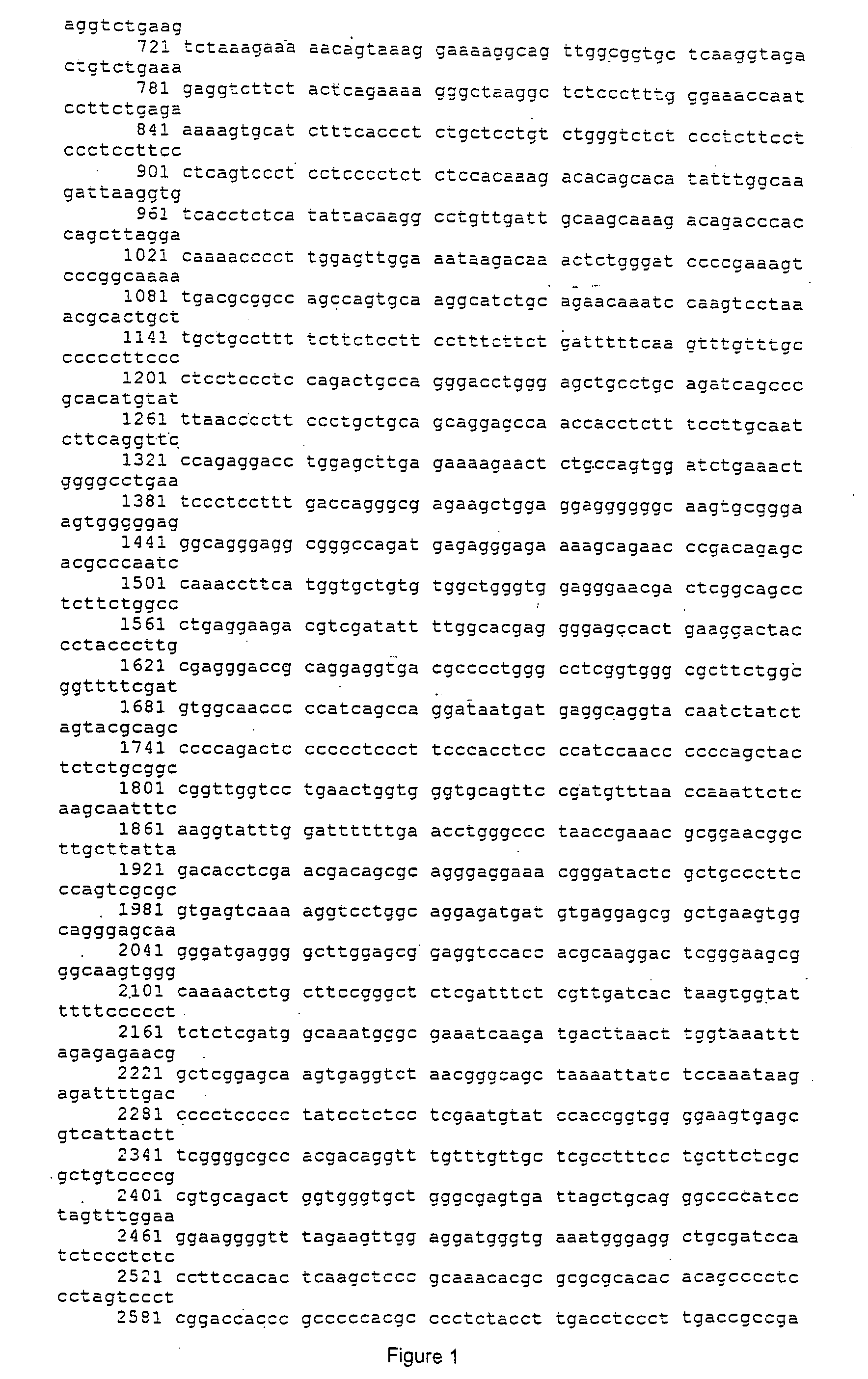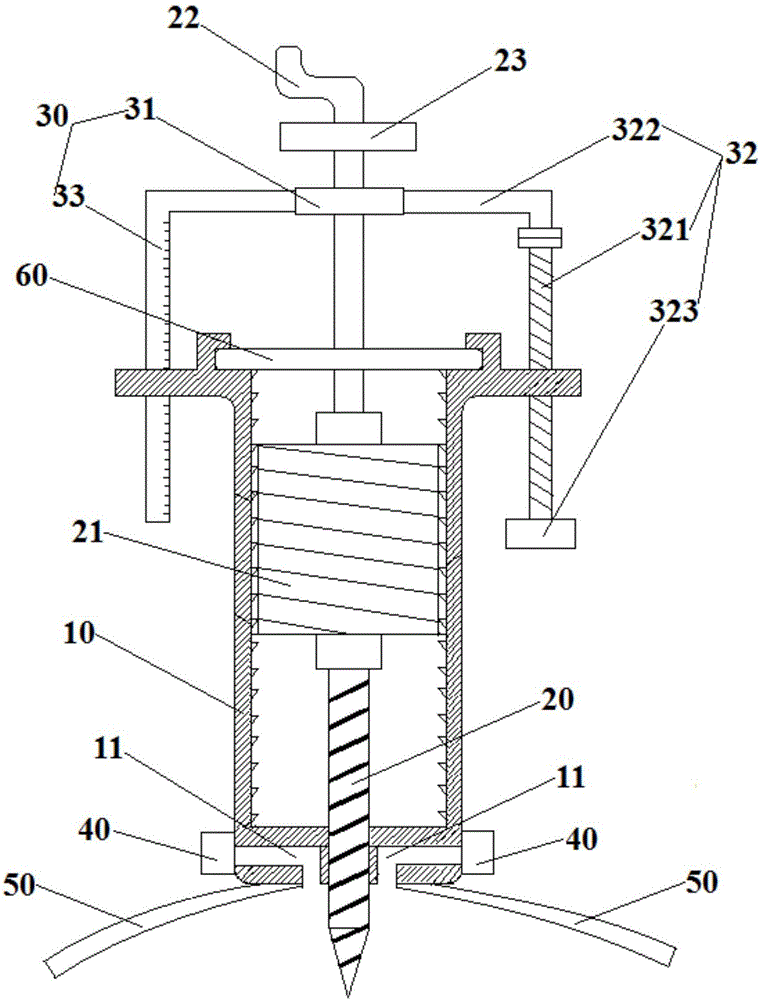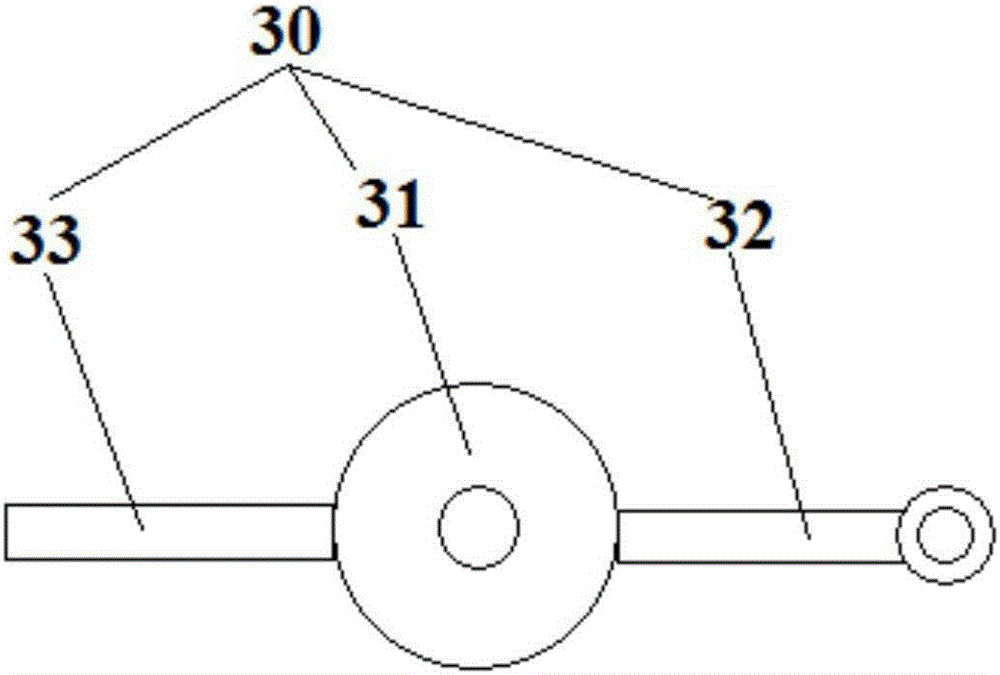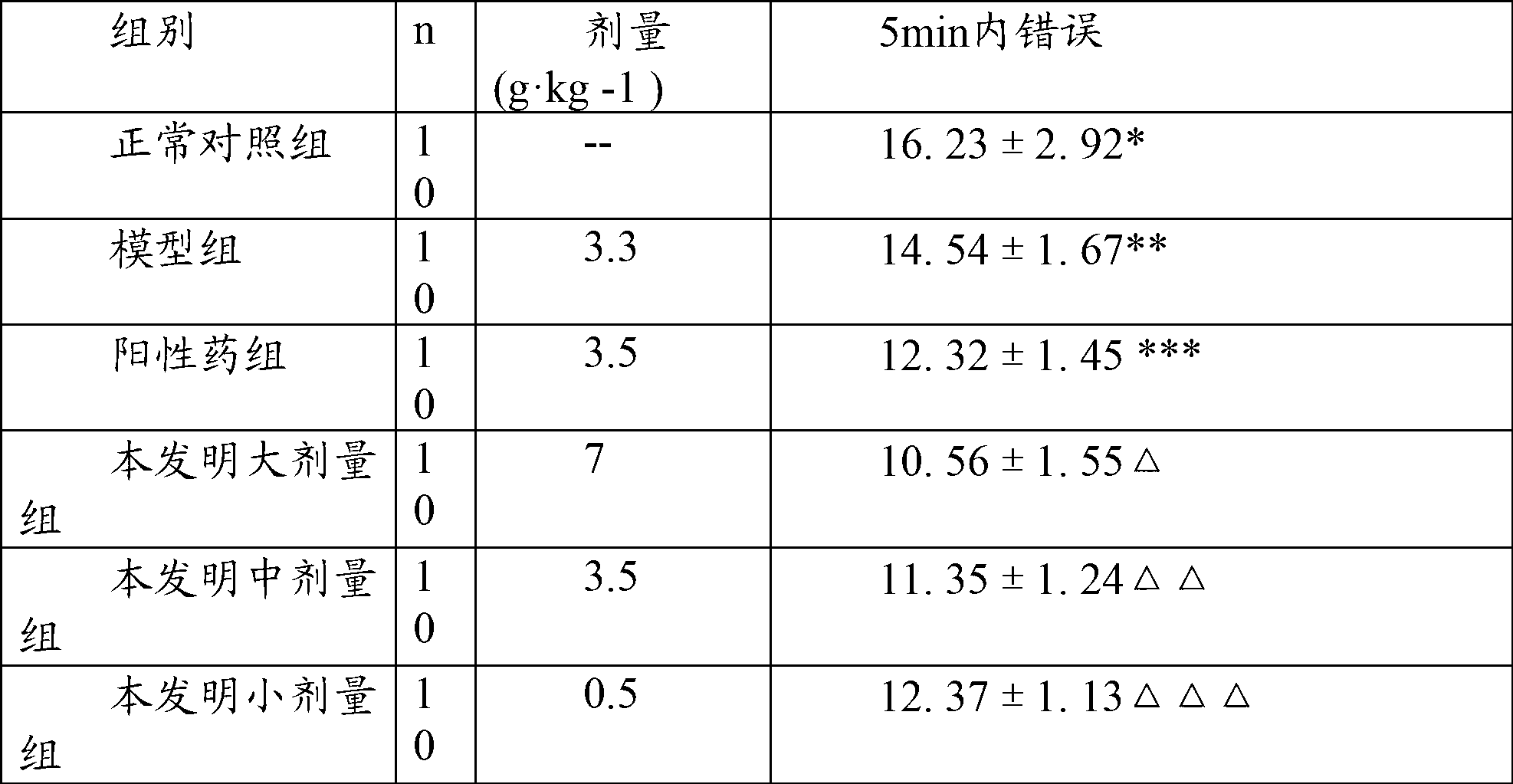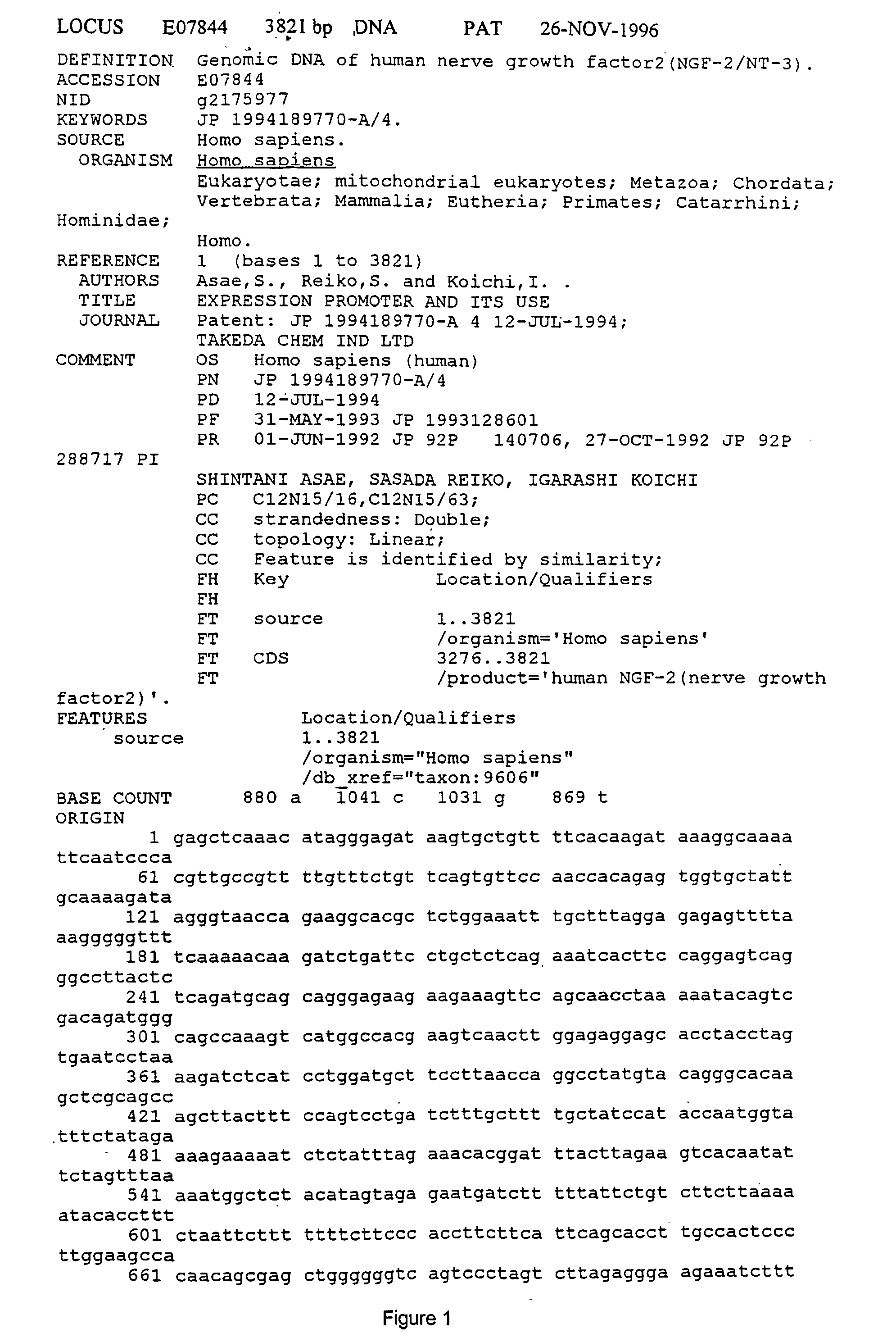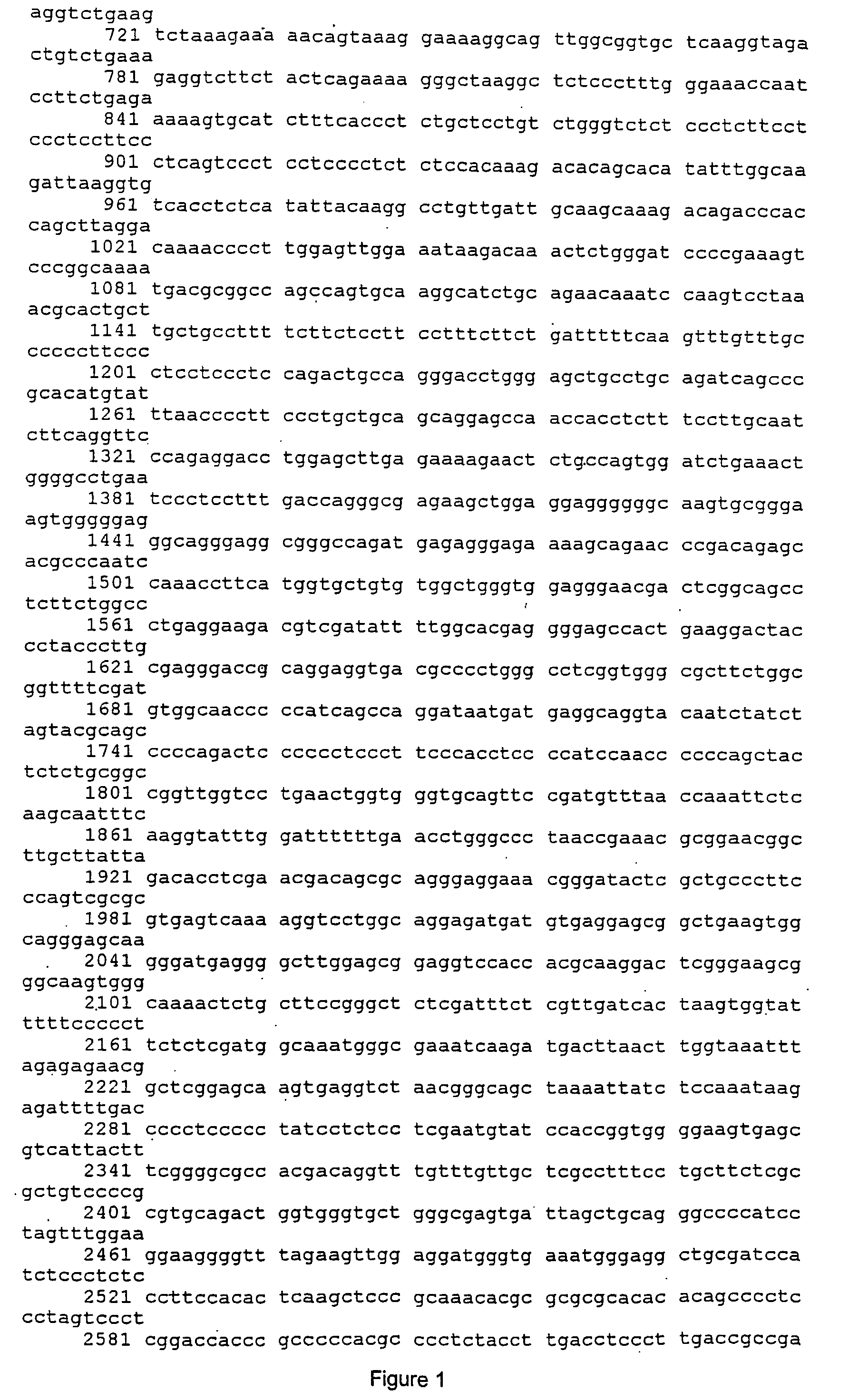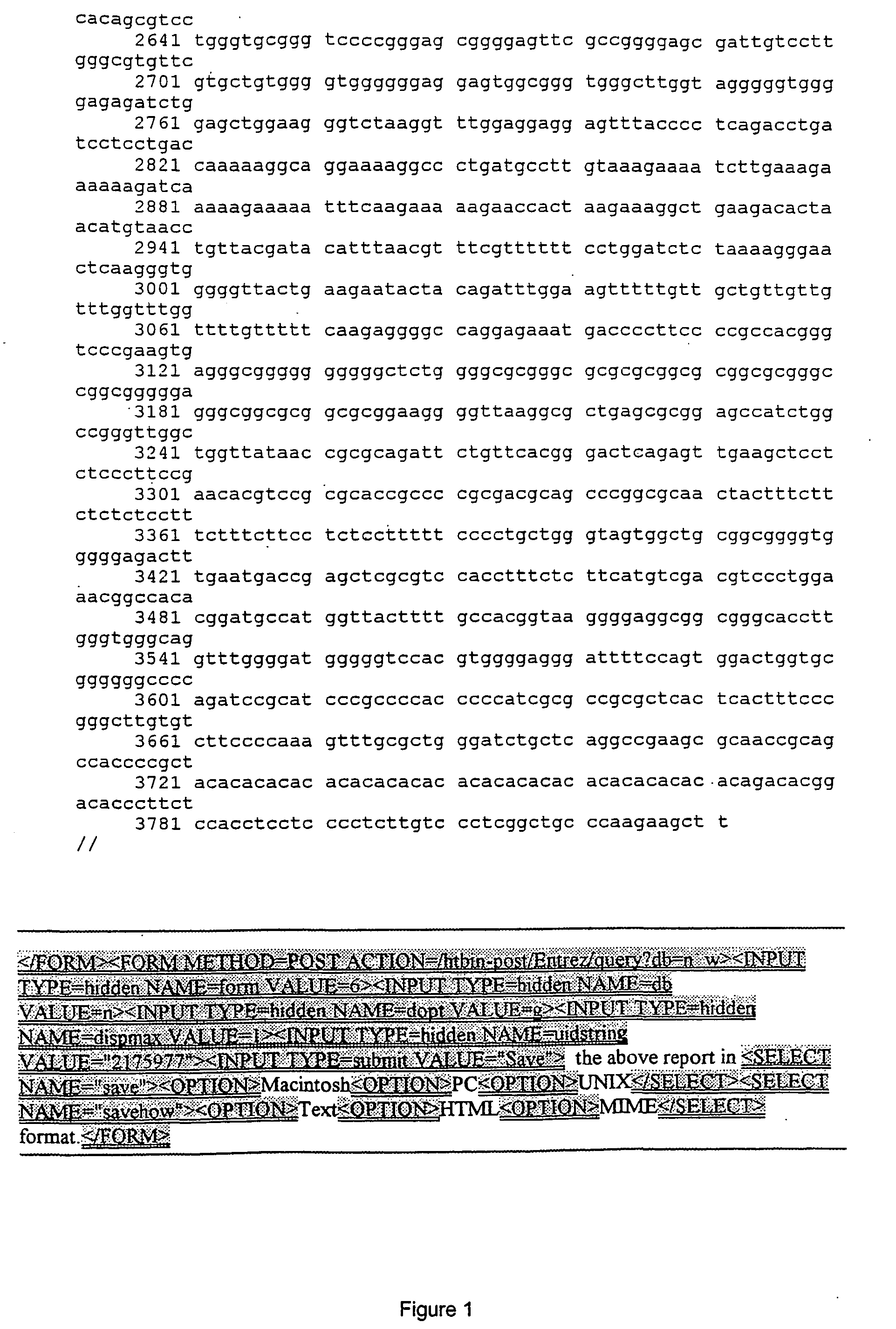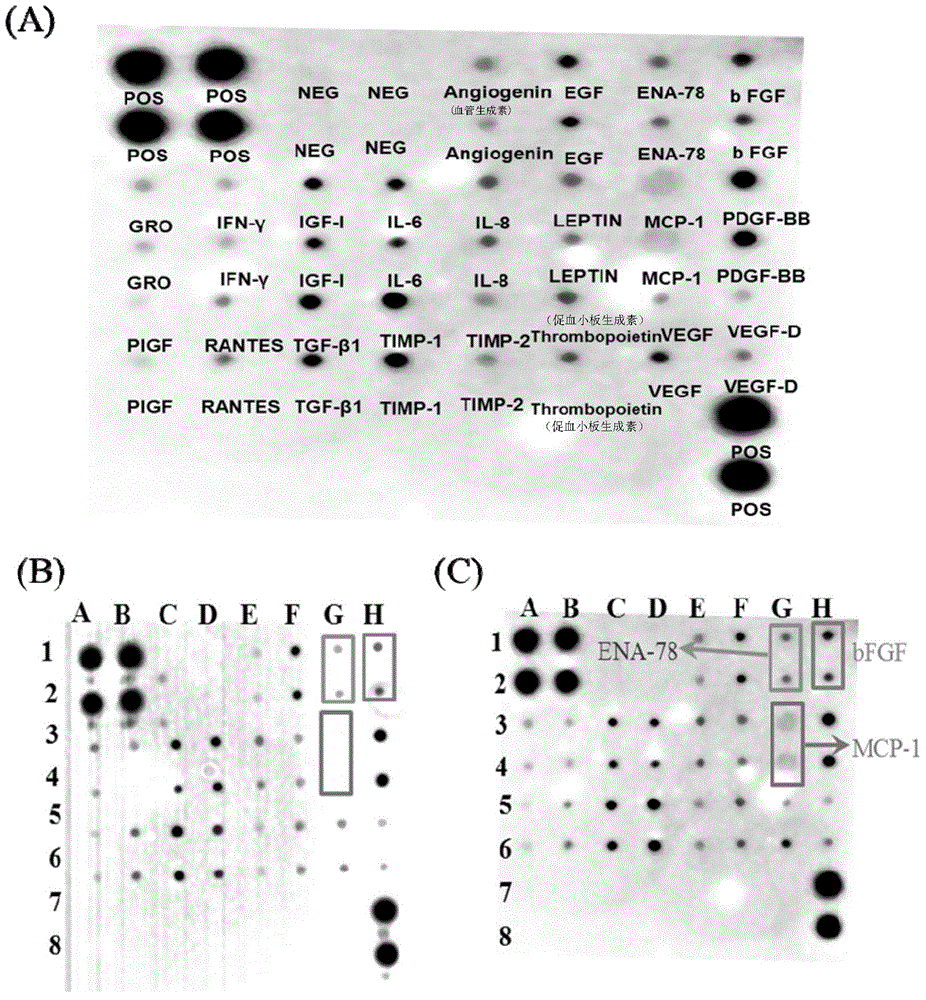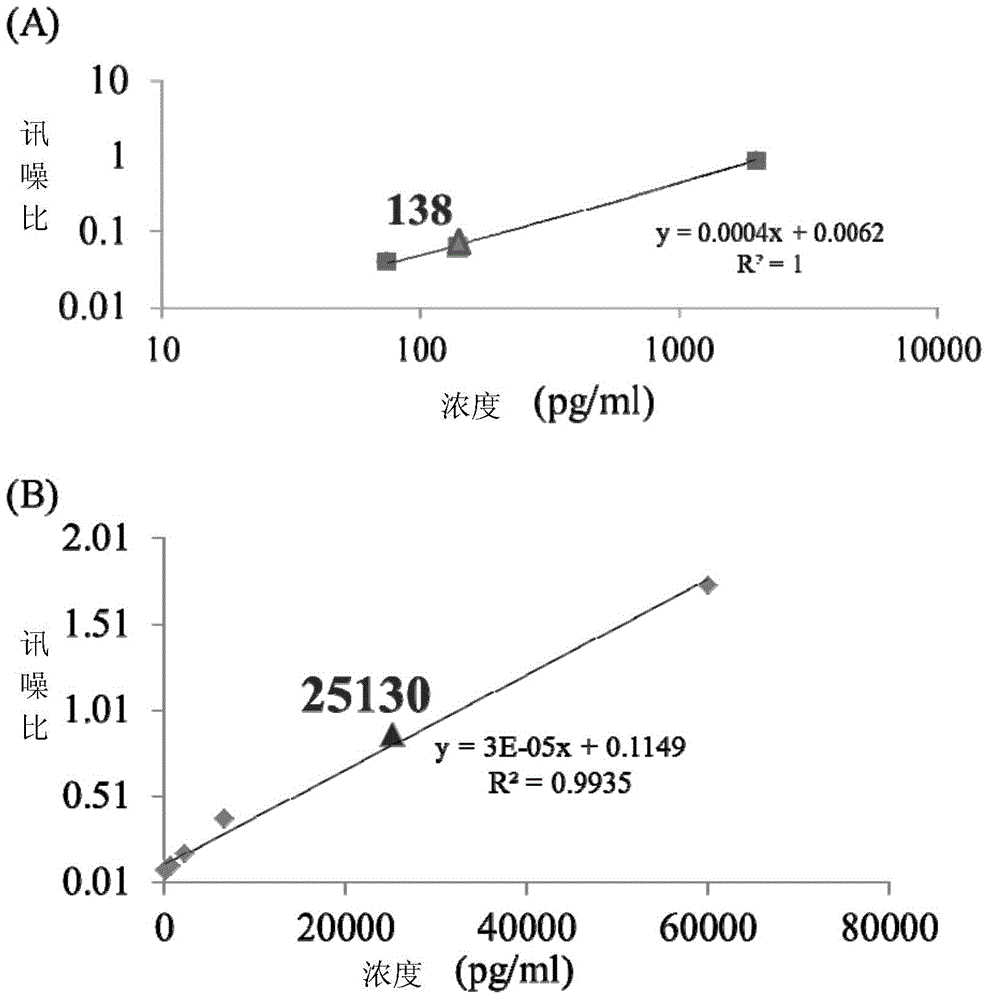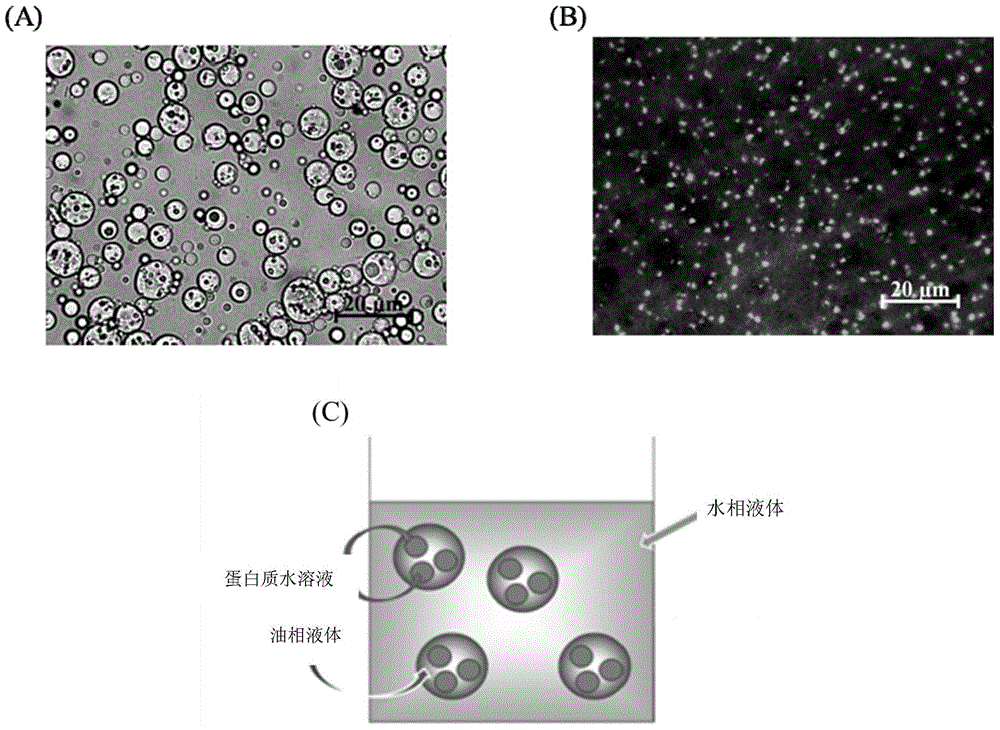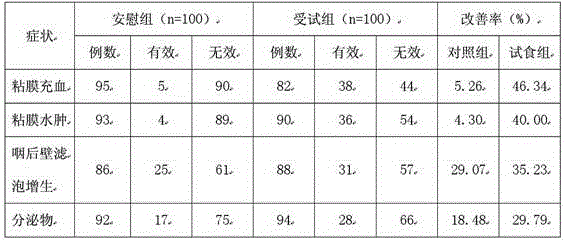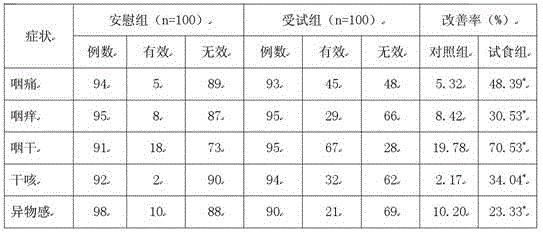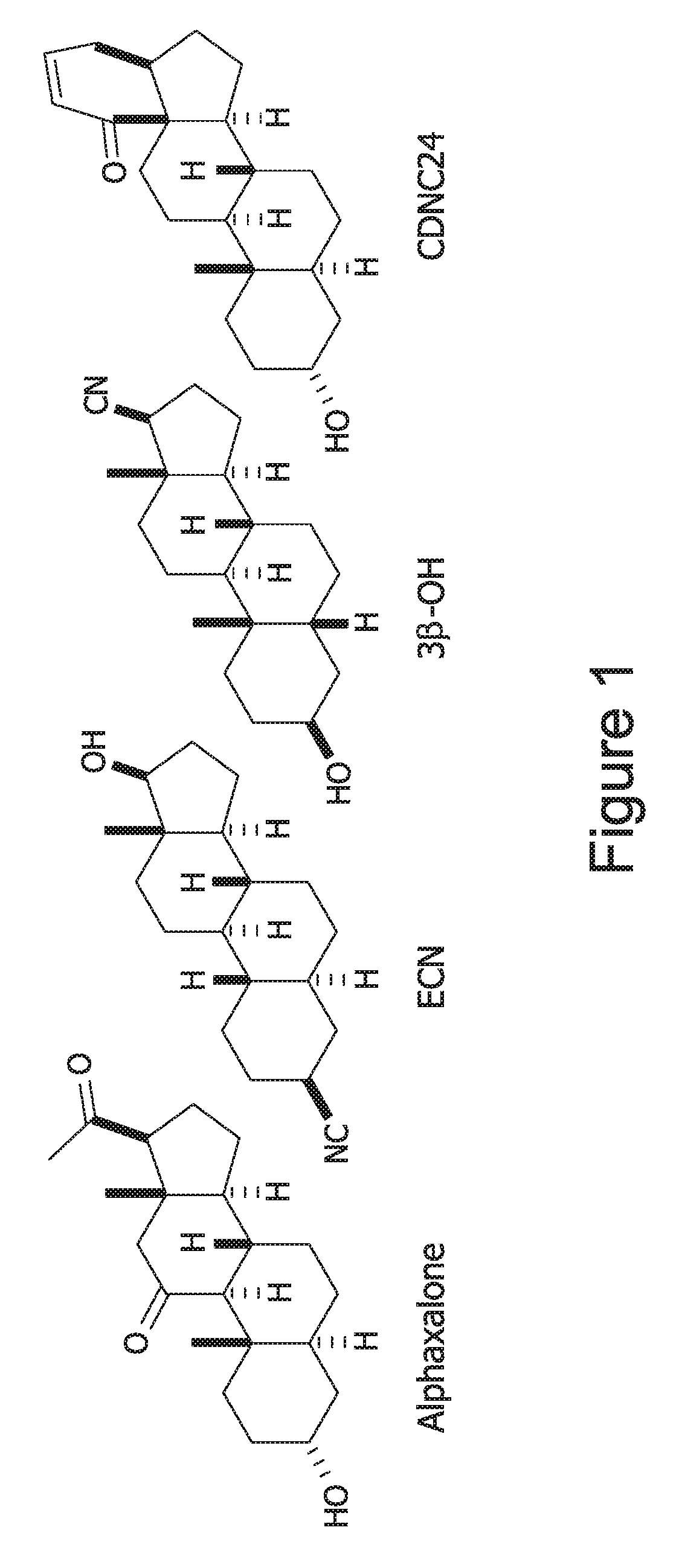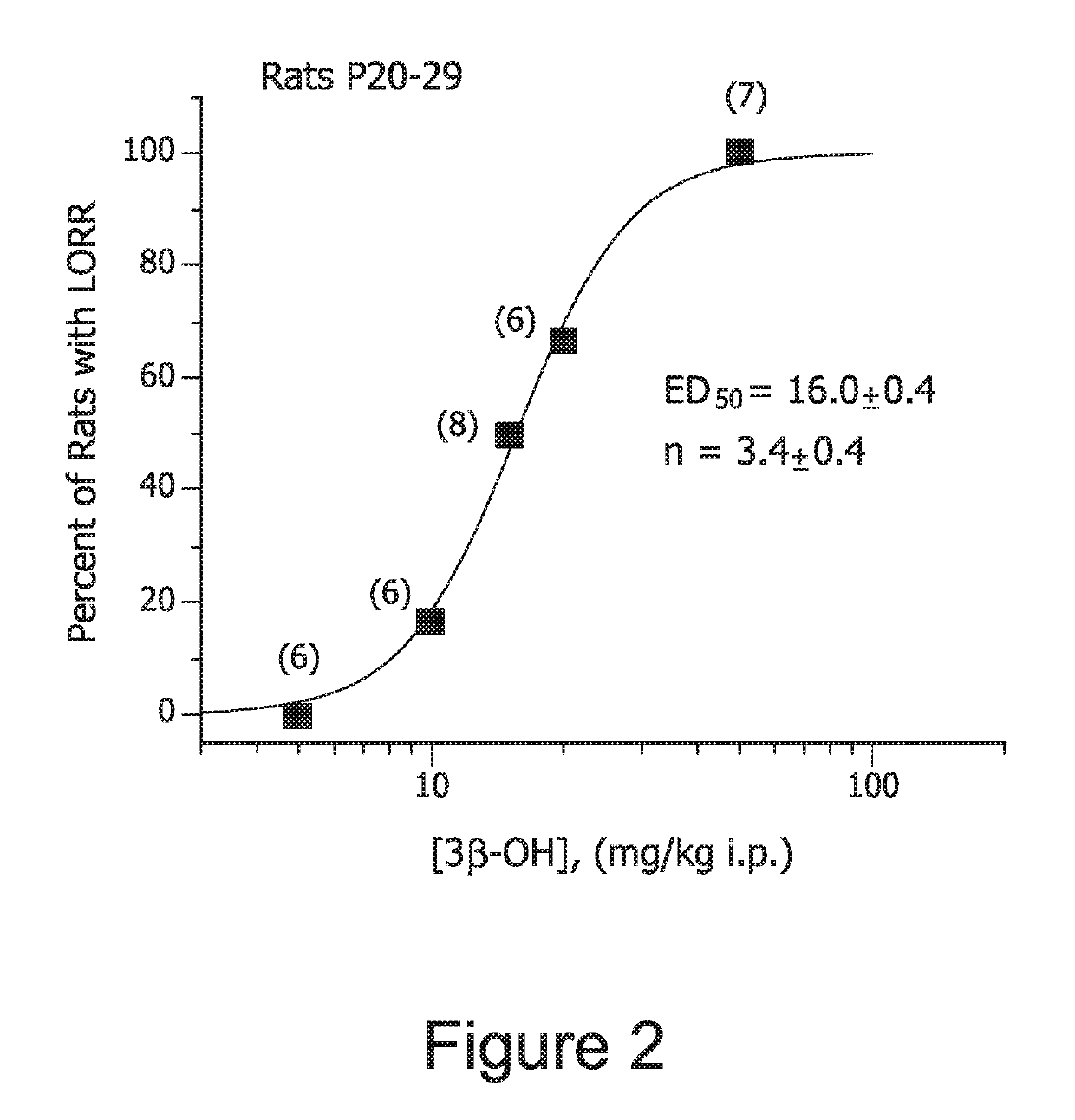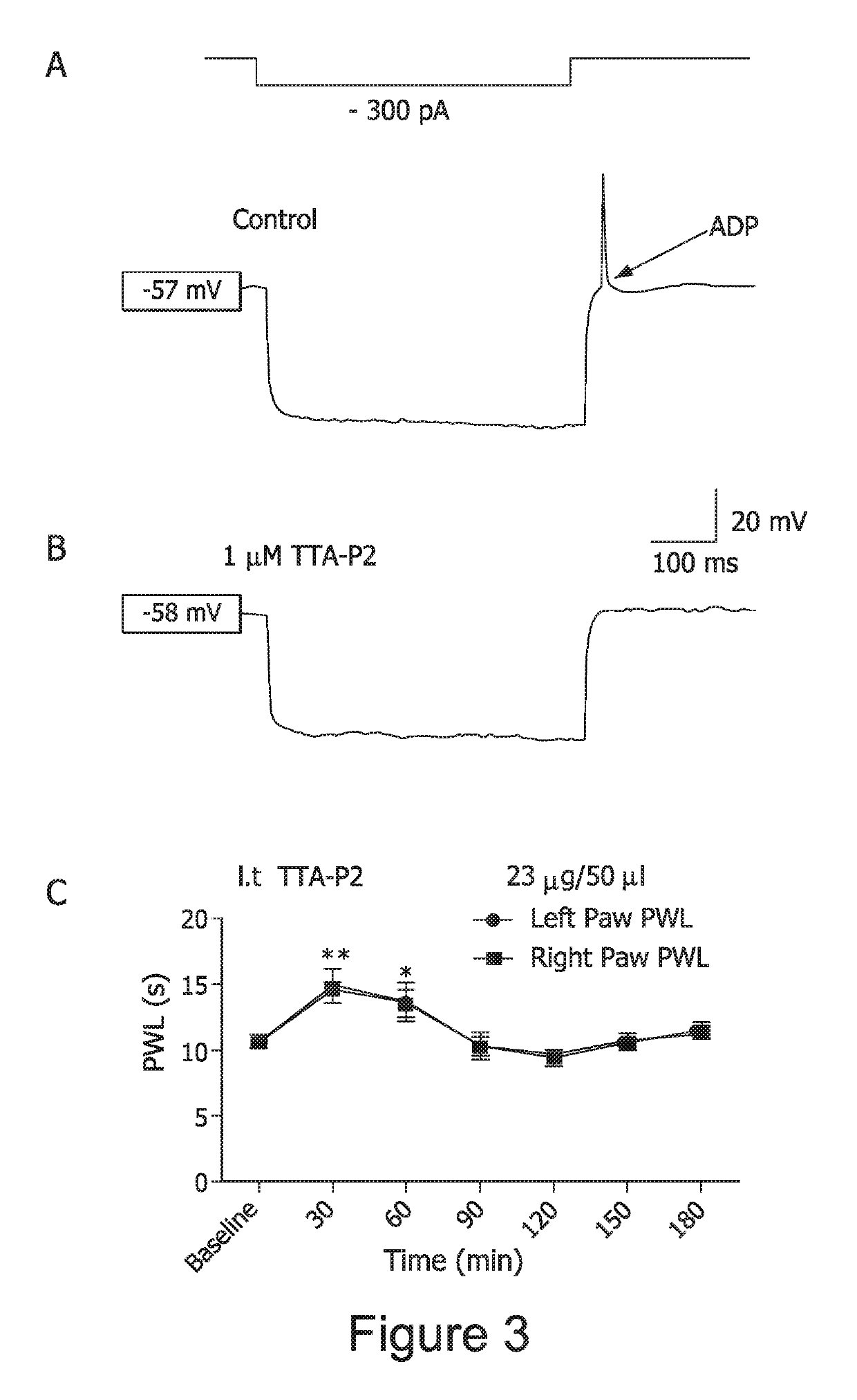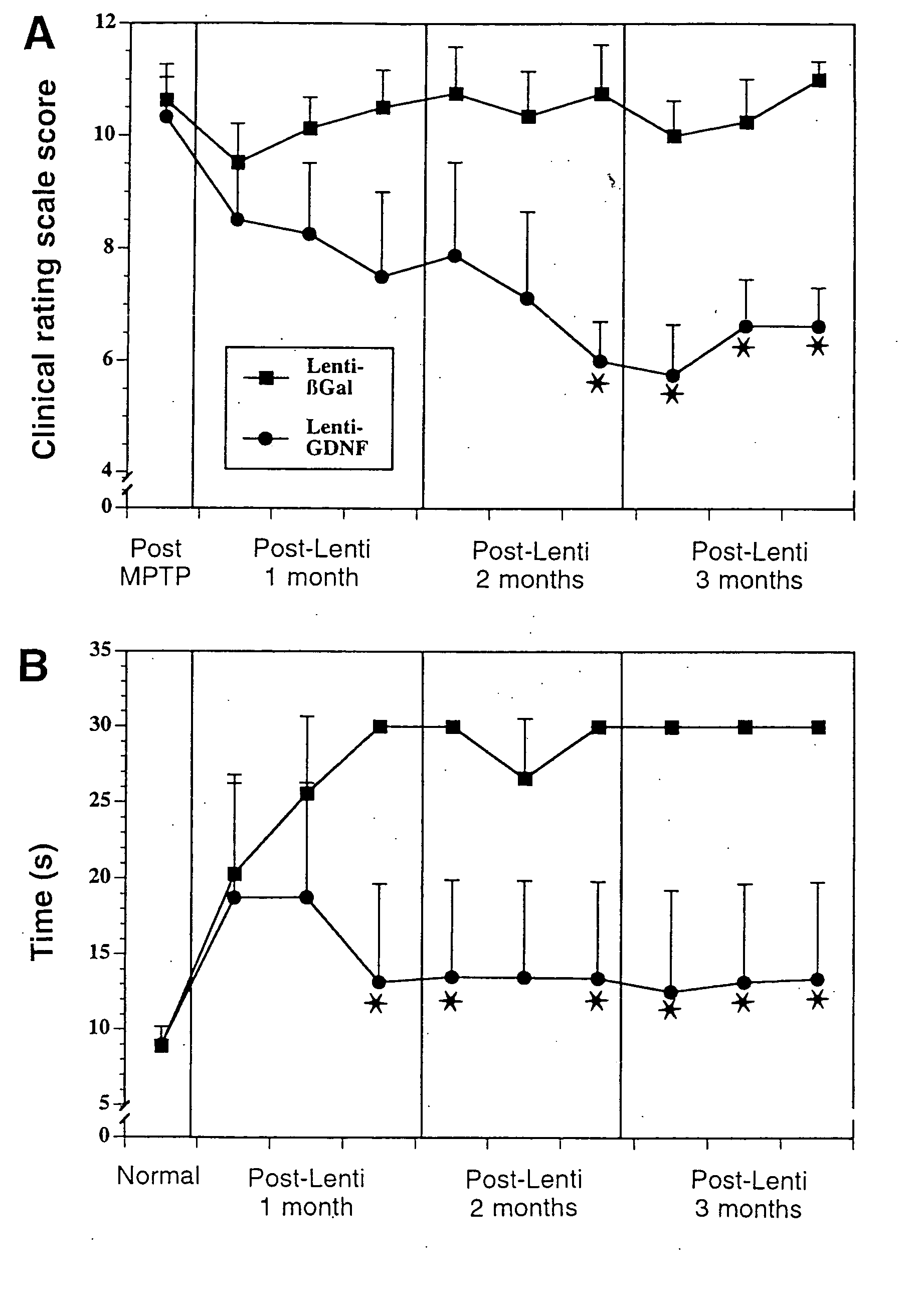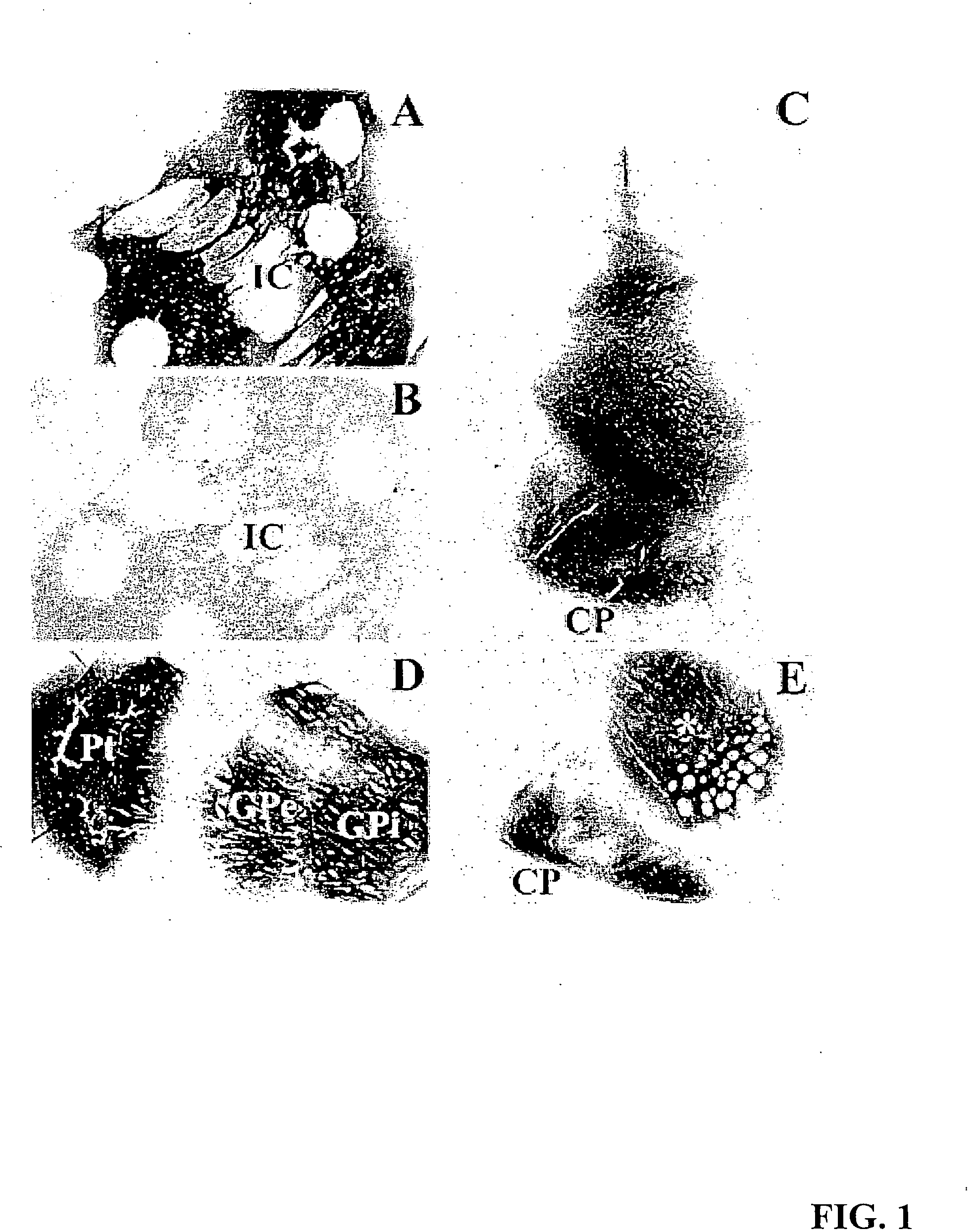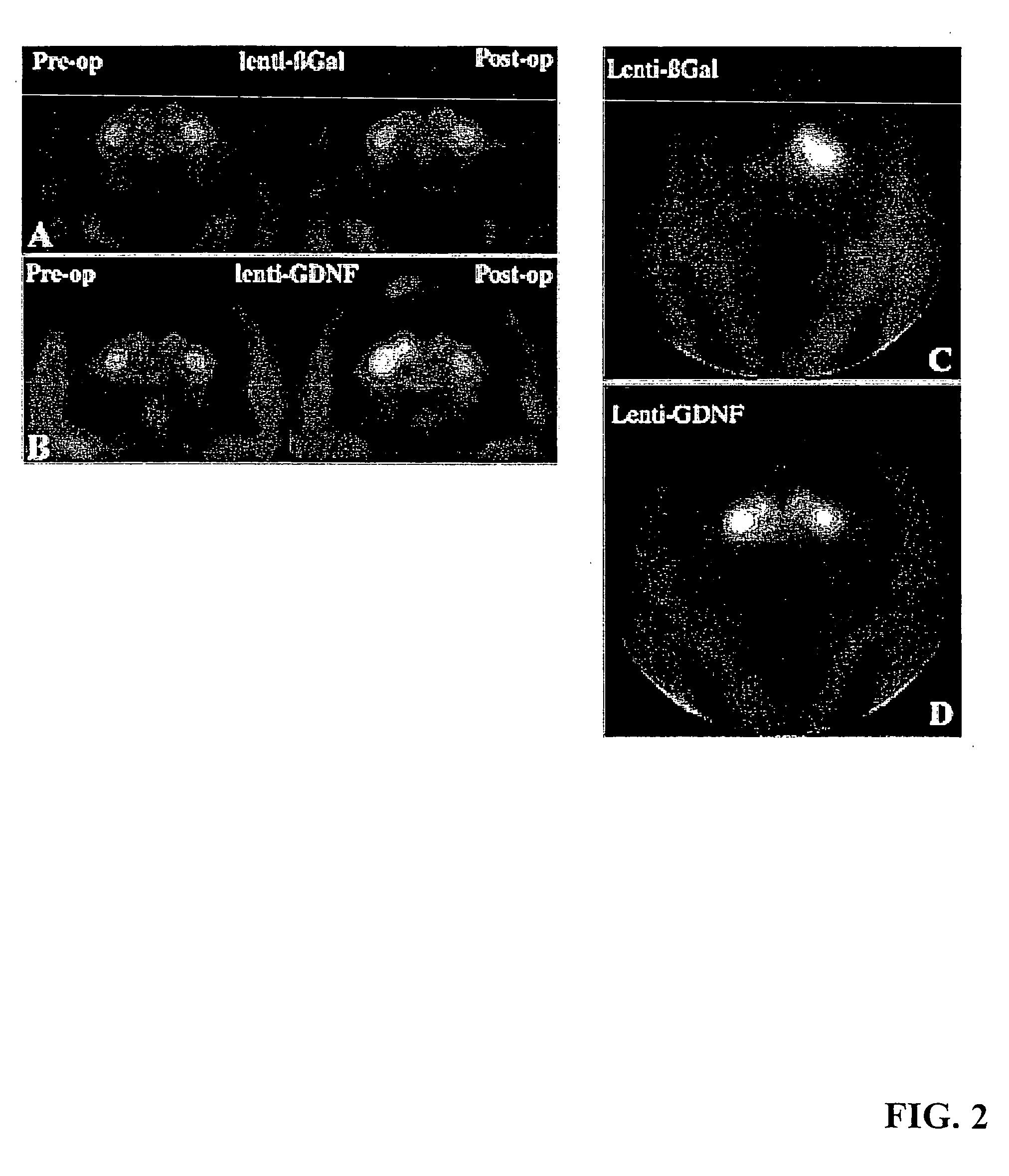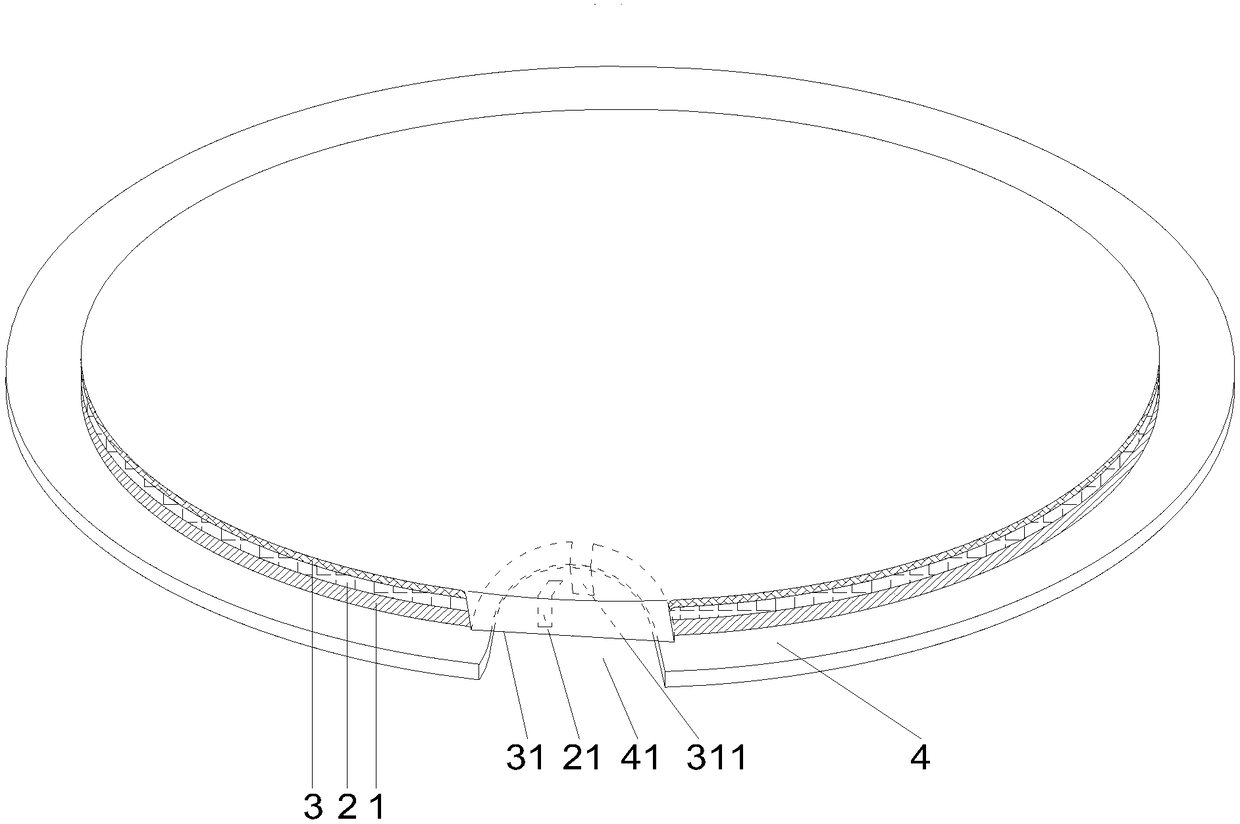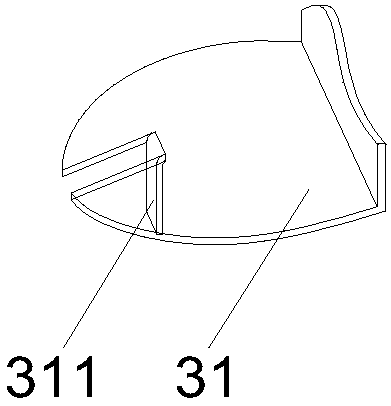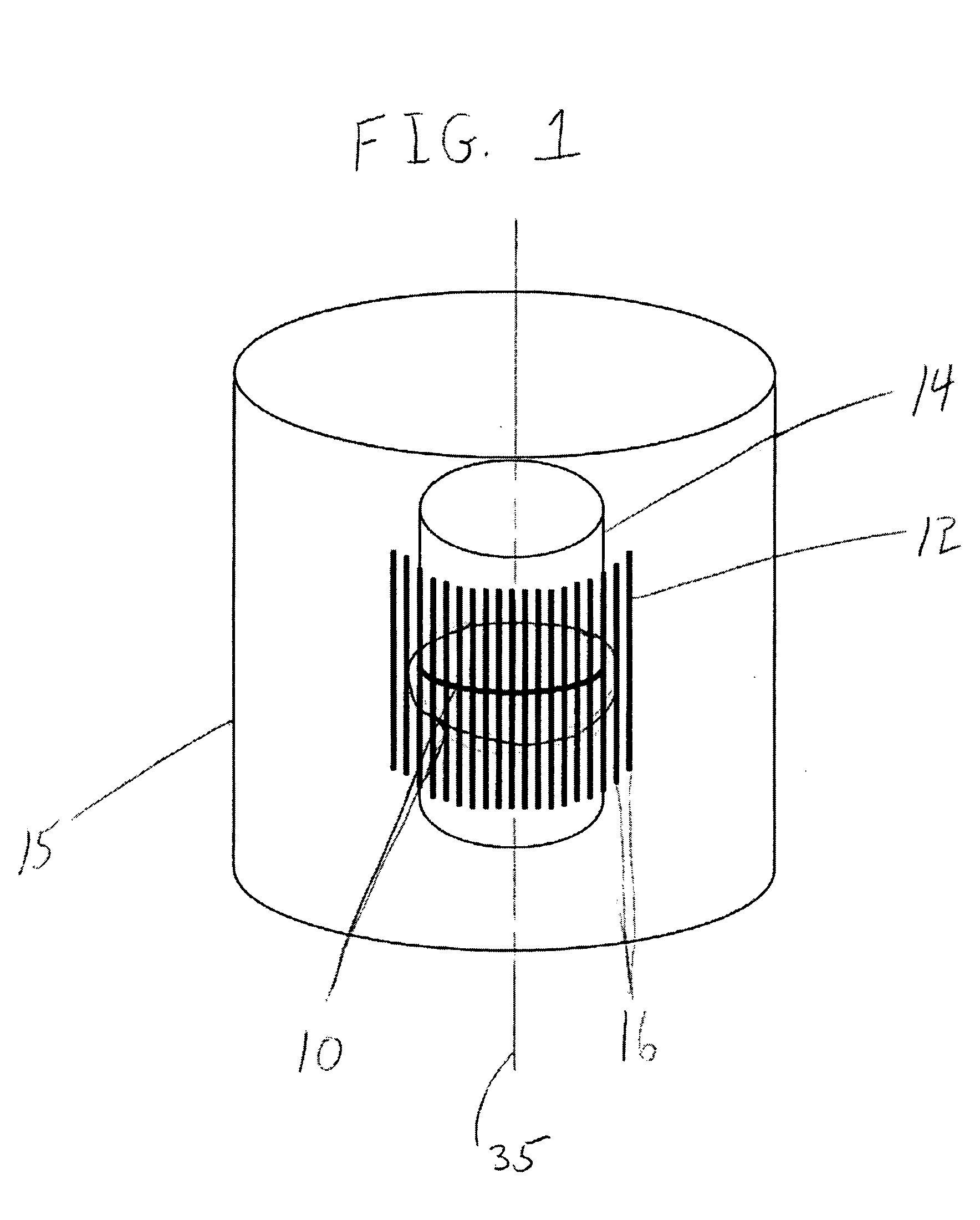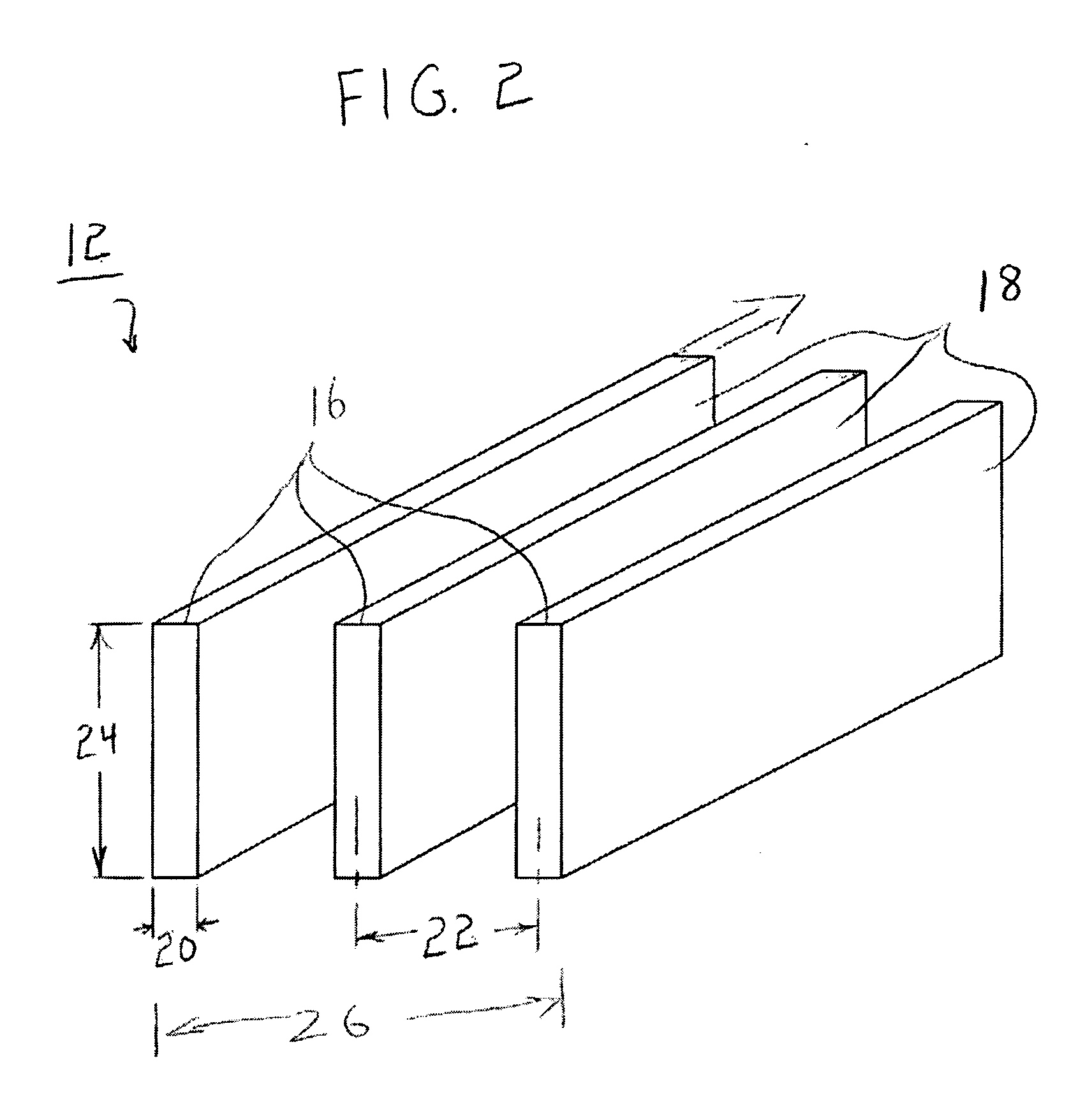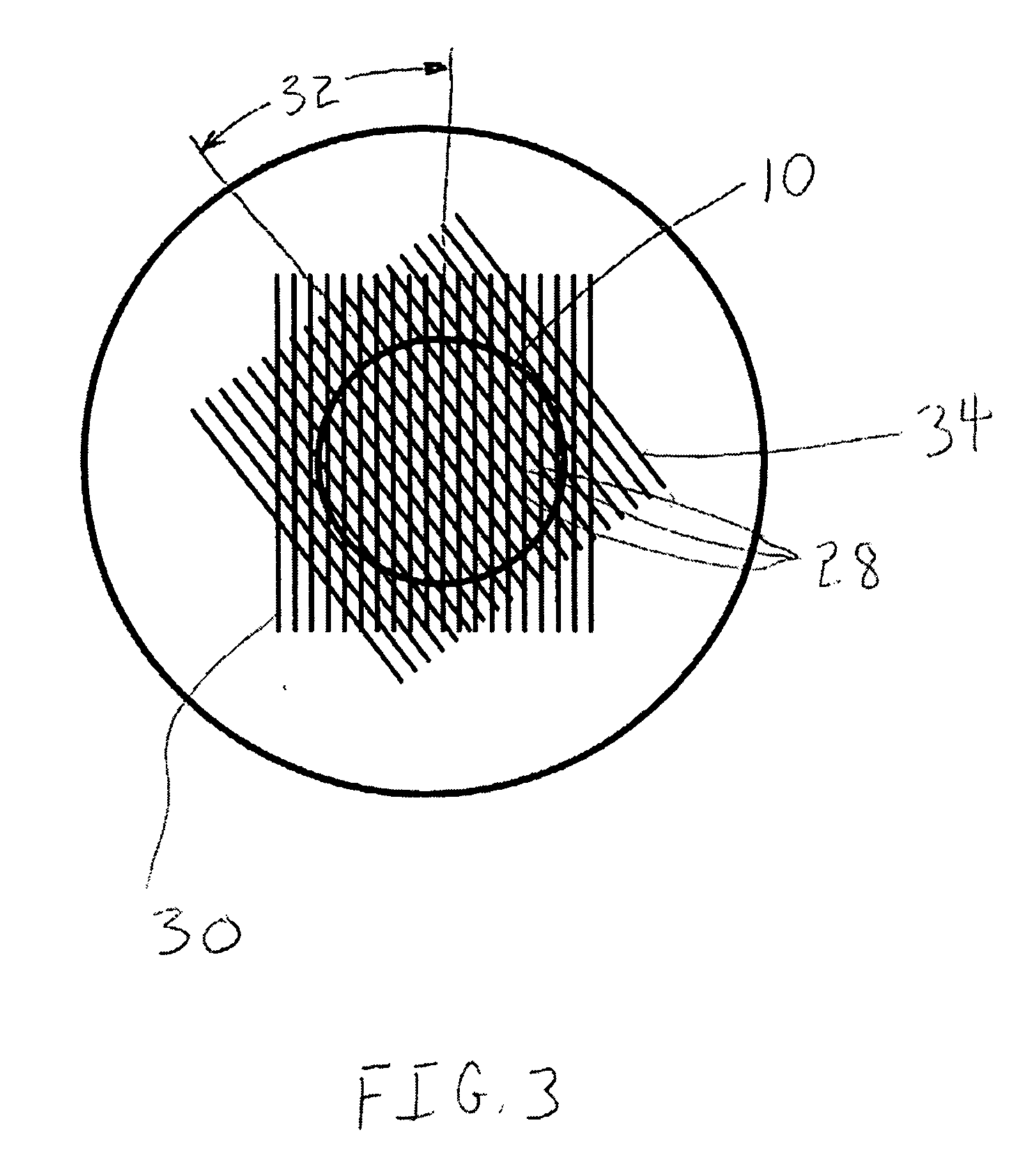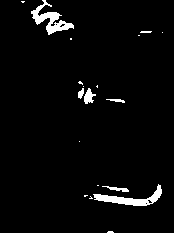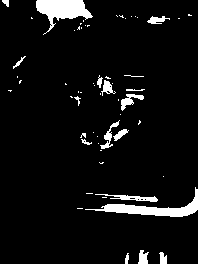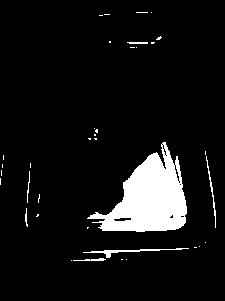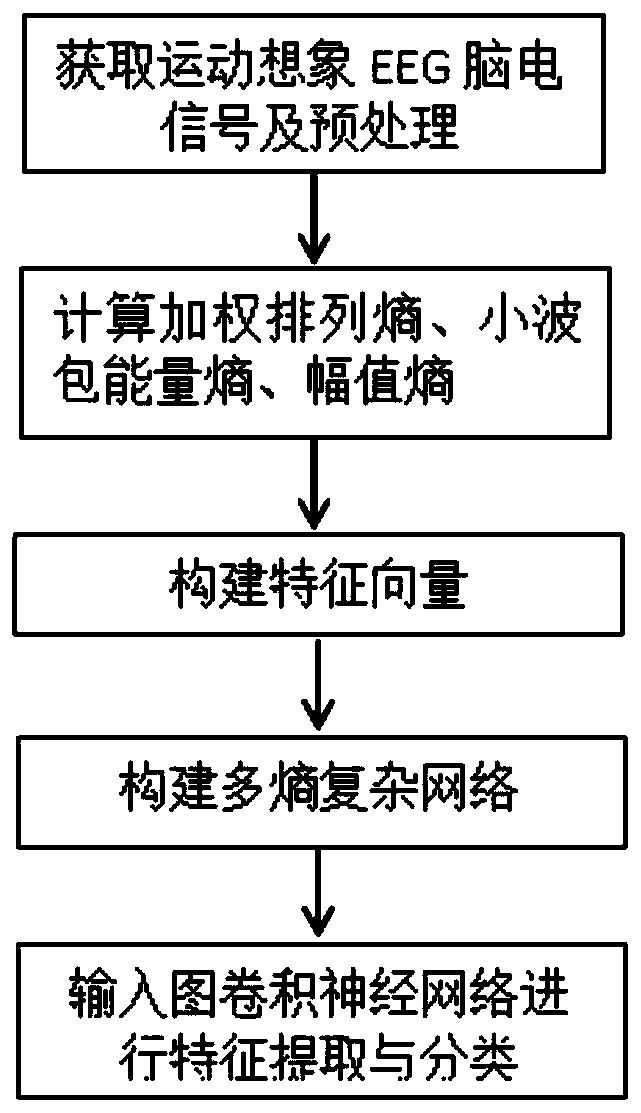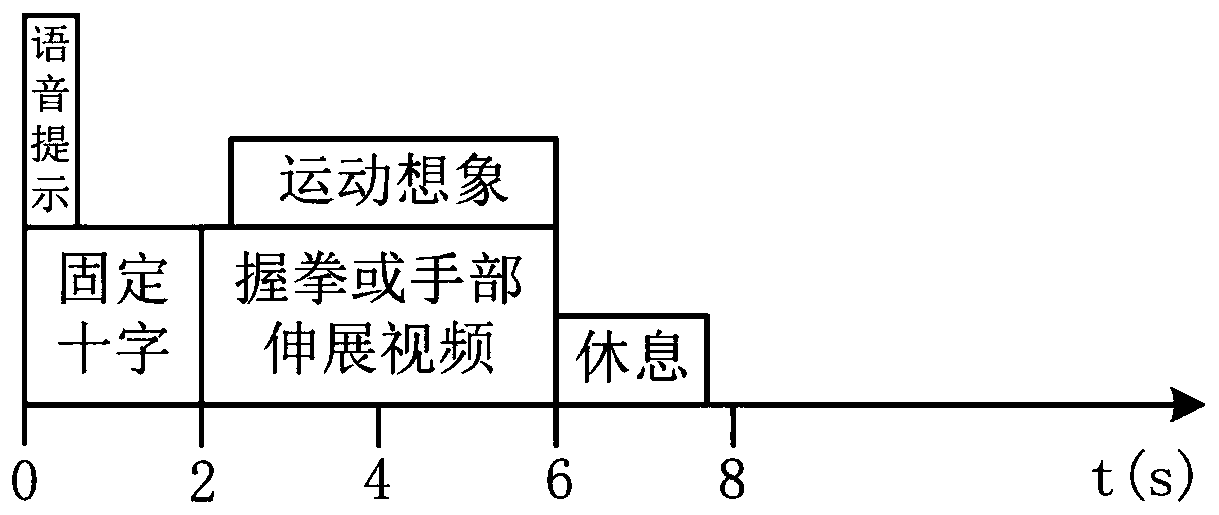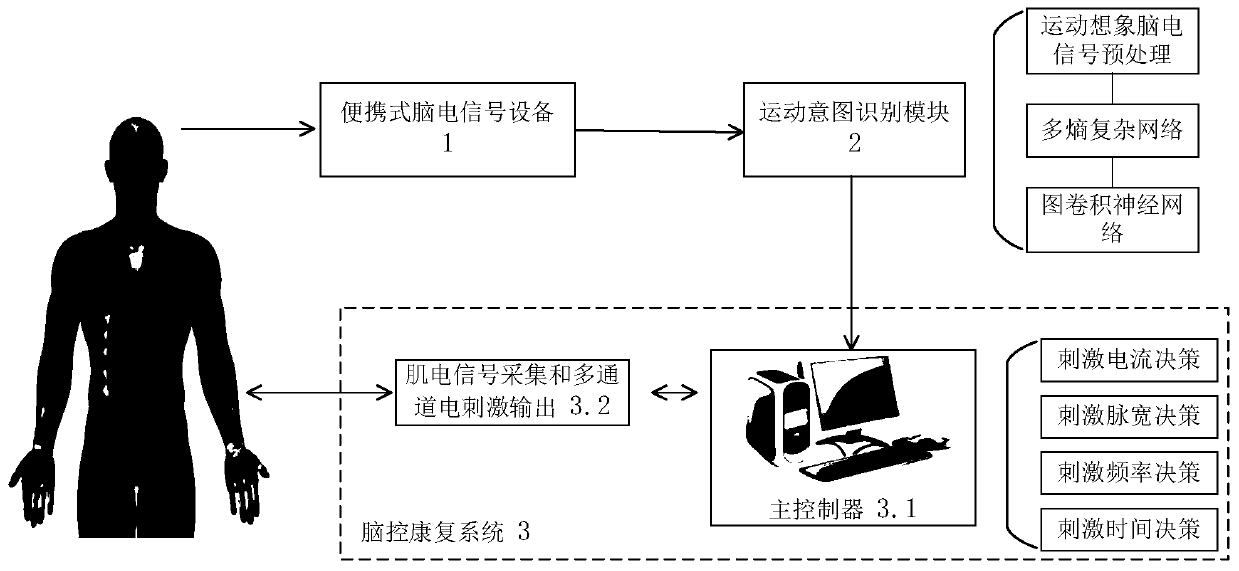Patents
Literature
71 results about "Damage brain" patented technology
Efficacy Topic
Property
Owner
Technical Advancement
Application Domain
Technology Topic
Technology Field Word
Patent Country/Region
Patent Type
Patent Status
Application Year
Inventor
Methods for assisting recovery of damaged brain and spinal cord using arrays of X-ray microplanar beams
ActiveUS7158607B2Promote regenerationMaximum functionX-ray/gamma-ray/particle-irradiation therapyIrradiation devicesX-rayInjury Site
A method of assisting recovery of an injury site of brain or spinal cord injury includes providing a therapeutic dose of X-ray radiation to the injury site through an array of parallel microplanar beams. The dose at least temporarily removes regeneration inhibitors from the irradiated regions. Substantially unirradiated cells surviving between the microplanar beams migrate to the in-beam irradiated portion and assist in recovery. The dose may be administered in dose fractions over several sessions, separated in time, using angle-variable intersecting microbeam arrays (AVIMA). Additional doses may be administered by varying the orientation of the microplanar beams. The method may be enhanced by injecting stem cells into the injury site.
Owner:WASHINGTON UNIV IN SAINT LOUIS +1
Methods for therapy of neurodegenerative disease of the brain
A specific clinical protocol for use toward therapy of defective, diseased and damaged cholinergic neurons in the mammalian brain, of particular usefulness for treatment of neurodegenerative conditions such as Alzheimer's disease. The protocol is practiced by delivering a definite concentration of recombinant neurotrophin into, or within close proximity of, identified defective, diseased or damaged brain cells. Using a viral vector, the concentration of neurotrophin delivered as part of a neurotrophic composition varies from 10<10 >to 10<15 >neurotrophin encoding viral particles / ml of composition fluid. Each delivery site receives from 2.5 mul to 25 mul of neurotrophic composition, delivered slowly, as in over a period of time ranging upwards of 10 minutes / delivery site. Each delivery site is at, or within 500 mum of, a targeted cell, and no more than about 10 mm from another delivery site. Stable in situ neurotrophin expression can be achieved for 12 months, or longer.
Owner:RGT UNIV OF CALIFORNIA
Catheter and guide tube for intracerebral application
ActiveUS8128600B2Easy to placeMinimizing the trauma to the brainSuture equipmentsNervous disorderParenchymaIntracerebral application
A catheter for use in neurosurgery, and a method of positioning neurosurgical apparatus. The catheter has a fine tube arranged for insertion into the brain parenchyma of a patient with an external diameter of not more than 1.0 mm. The catheter and method may be used in stereotactically targeting treatment of abnormalities of brain function, and for the infusion of therapeutic agents directly into the brain parenchyma. This is advantageous when a therapeutic agent would have widespread unwanted effects which could be avoided by confining the delivery to the malfunctioning or damaged brain tissue.
Owner:RENISHAW (IRELAND) LTD
Methods for therapy of neurodegenerative disease of the brain
InactiveUS6451306B1Reduce adverse effectsAvoid restrictionsBiocideVirusesBasal forebrainTherapeutic Area
The invention provides a specific protocol for use in grafting donor cells genetically modified to produce nerve growth factors into grafting sites within the cholinergic basal forebrain and is especially useful in treating neurodegenerative conditions such as Alzheimer's Disease. Grafting sites are selected for proximity to previously identified defective, diseased or damaged brain cells. Each graft is situated no more than about 550 mum from a targeted cell and no more than about 5 mm from another graft. Depending on the size of the region to be treated, the number of grafting sites will vary upwards of 10 sites, with between 5 and 10 sites serving to deliver a therapeutically significant dosage of nerve growth factors to targeted cells. Donor cells are delivered in a composition concentration of at least 1x105 cells / mul, wherein each graft is comprised of between 2 and 20 mul of the donor cell composition. The composition is delivered to each grafting site over a period of about 5-10 minutes.
Owner:RGT UNIV OF CALIFORNIA
Catheter and guide tube for intracerebral application
InactiveUS20110282319A1Easy to placeMinimize traumaNervous disorderDiagnosticsIntracerebral applicationParenchyma
A catheter for use in neurosurgery, and a method of positioning neurosurgical apparatus. The catheter has a fine tube arranged for insertion into the brain parenchyma of a patient with an external diameter of not more than 1.0 mm. The catheter and method may be used in stereotactically targeting treatment of abnormalities of brain function, and for the infusion of therapeutic agents directly into the brain parenchyma. This is advantageous when a therapeutic agent would have widespread unwanted effects which could be avoided by confining the delivery to the malfunctioning or damaged brain tissue.
Owner:RENISHAW (IRELAND) LTD
Methods for therapy of neurodegenerative disease of the brain
InactiveUS6815431B2Improve the level ofMinimal toxicityBiocidePeptide/protein ingredientsMammalMammalian brain
Owner:RGT UNIV OF CALIFORNIA
Methods for therapy of neurodegenerative disease of the brain
A specific clinical protocol for use toward therapy of defective, diseased and damaged cholinergic neurons in the mammalian brain, of particular usefulness for treatment of neurodegenerative conditions such as Alzheimer's disease. The protocol is practiced by delivering a definite concentration of recombinant neurotrophin into, or within close proximity of, identified defective, diseased or damaged brain cells. Using a viral vector, the concentration of neurotrophin delivered as part of a neurotrophic composition varies from 1010 to 1015 neurotrophin encoding viral particles / ml of composition fluid. Each delivery site receives from 2.5 μl to 25 μl of neurotrophic composition, delivered slowly, as in over a period of time ranging upwards of 10 minutes / delivery site. Each delivery site is at, or within 500 μm of, a targeted cell, and no more than about 10 mm from another delivery site. Stable in situ neurotrophin expression can be achieved for 12 months, or longer.
Owner:RGT UNIV OF CALIFORNIA
Chinese medicine composition for treating cerebral hemorrhage and its prepn
InactiveCN1772052APromote repairPromote nerve functionAnthropod material medical ingredientsCardiovascular disorderDiseaseCerebral hemorrhages
The present invention is one kind of Chinese medicine composition for treating cerebral hemorrhage and is preparation process. The Chinese medicine composition consists of effective components from motherwort, giant knotweed, leech, gentian, and buffalo horn or rhinoceros horn; and may be prepared into medicine powder, tincture, capsule, tablet, micro pill and other forms. The Chinese medicine composition has the function of promoting blood circulation to disperse blood clots, and can alleviate hemorrhagic apoplexy cerebral edema, promote the absorption of hematoma and disease focus repair, improve the ischemic and anoxic state of nerve tissue around hematoma, protect damaged brain cell and promote restoring of the nerve function.
Owner:GUANGDONG HOSPITAL OF TRADITIONAL CHINESE MEDICINE
Healthcare product capable of improving memory and production method thereof
InactiveCN105311072AEnhance memoryFunction increaseOrganic active ingredientsNervous disorderBiotechnologyAdditive ingredient
An embodiment of the invention discloses a healthcare product capable of improving memory and a production method thereof and belongs to the technical field of healthcare products. The healthcare product comprises, by weight, 100-600 parts of phosphatidylserine, 1000-3000 parts of fish oil and 100-600 parts of acer truncatum seed oil. The healthcare product has the advantages that the acer truncatum seed oil is rich in nervonic acid and is capable of repairing and dredging damaged brain neural pathways, namely nerve fibers, promoting nerve cell regeneration and promoting a human body to absorb and utilize nutritional ingredients in the fish oil and phosphatidylserine; the phosphatidylserine is capable of improving nerve cell functions, adjusting nerve impulse transmission and improving brain memory functions, and the phosphatidylserine can enter the brain through blood brain barrier after being absorbed to relieve vascular smooth muscle cells and increase brain blood supply; meanwhile, the phosphatidylserine and fish oil achieve a synergic effect and can promote absorption of each other, and nerve cell protection is achieved. The production method is simple to operate and suitable for industrial popularization and application.
Owner:北京世纪合辉医药科技股份有限公司
Medicinal composition for treating ischemic stroke
ActiveCN104825845AImprove health statusImprove healthCardiovascular disorderLeech/worm material medical ingredientsSalvia miltiorrhizaCentipede
The invention discloses a medicinal composition for treating ischemic stroke. The medicinal composition comprises one or more of Radix Astragali, Chinese angelica, Eucommia ulmoides, Panax Notoginseng, radix paeoniae rubra, Ligusticum wallichii, Salvia miltiorrhiza and safflower in Sichuan, and one or more of Gambir Plant, rhizoma gastrodiae, cassia seed, Gentiana macrophylla, lumbricus, scorpion and centipede. The traditional Chinese medicinal composition can improve ischemic damaged brain tissue structure, reduces intercellular substance oedema, substantially reduces the level of TNF-alpha and ICAM-1, has an anti-cerebral ischemia damage effect, has the efficacies of blood stasis removing, tissue regeneration promoting, endogenous wind calming and vein relaxing, can substantially reduce the hemiplegia rate and mortality of thrombus hemiplegia, and also can substantially improve acute blood stasis.
Owner:SICHUAN PROVINCIAL PEOPLES HOSPITAL
Methods for therapy of neurodegenerative disease of the brain
InactiveUS20070249554A1Avoid restrictionsReduce adverse effectsOrganic active ingredientsNervous disorderCholinergic cellsMammalian brain
A specific clinical protocol for use toward therapy of defective, diseased and damaged cholinergic neurons in the mammalian brain, of particular usefulness for treatment of neurodegenerative conditions such as Alzheimer's disease. The protocol is practiced by delivering a definite concentration of recombinant neurotrophin into, or within close proximity of, identified defective, diseased or damaged brain cells. Using a viral vector, the concentration of neurotrophin delivered as part of a neurotrophic composition varies from 1010 to 1015 neurotrophin encoding viral particles / ml of composition fluid. Each delivery site receives form 2.5 μl to 25 μl of neurotrophic composition delivered slowly, as in over a period of time ranging upward of 10 minutes / delivery site. Each delivery site is at, or within 500 μm of, a targeted cell, and no more than about 10 mm from another delivery site. Stable in situ neurotrophin expression can be achieved for 12 months, or longer.
Owner:RGT UNIV OF CALIFORNIA
Medical drilling device
ActiveCN106725710AAccurately limit the drilling depthSolve the problem of not being able to grasp the drilling depthDiagnosticsSurgeryInterventional therapyNervous tissue
The invention discloses a medical drilling device. With application of the medical drilling device of the technical scheme, by arranging a main shell, a drill bit and a limiting part, the drill bit is movably arranged in the main shell in the axial direction; the limiting part is adjustably arranged on the main shell and limits the drill bit at a preset position when the drill bit moves to the preset position in the axial direction, so that the medical drilling device can accurately limit the drilling depth of the drill bit to prevent the drill bit from damaging brain nervous tissues of a patient when drilling a hole in a brain of the patient in the interventional therapy process, and the problem that the drilling depth of the adopted drill bit cannot be grasped when department of cerebral surgery carries out interventional therapy on the patient in the prior art is solved.
Owner:FOURTH MILITARY MEDICAL UNIVERSITY
Folium ginkgo health product for preventing senile dementia and preparation method thereof
InactiveCN103055014AEnhance peripheral nerve functionIncreased systolic functionNervous disorderPlant ingredientsAdditive ingredientAdemetionine
The invention provides a folium ginkgo health product for preventing senile dementia, which comprises raw materials by weight portions: 10-30 portions of folium ginkgo, 10-20 portions of polygala tenuifolia, 10-20 portions of prepared rehmannia root, 10-20 portions of Chinese angelica, 10-20 portions of dogwood, 10-20 portions of root of red-rooted salvia, 10-20 portions of poria with hostwood, 10-20 portions of walnut kernel, 10-20 portions of codonopsis pilosula, 10-20 portions of platycladi seed, 10-20 portions of herba epimedii, 10-20 portions of astragalus mongholicus, 10-20 portions of polygonum multiflorum, 10-20 portions of white paeony root, 10-20 portions of fructus ligustri lucidi, 10-20 portions of bunge cherry seed, 10-20 portions of albizia flower and 10-20 portions of tuber fleeceflower stem. The folium ginkgo is extracted, the effective ingredients of the folium ginkgo are retained, the toxicity is reduced, and medicine directly reaches lesions to regulate qi and blood and balance yin and yang. On the one hand, the brain cell shrinkage function is improved, the conditions of Qi-stagnation and blood stasis and venation with the blood stasis are improved, qi and blood keep unblocked, and the blood oxygen supply of brain tissue is secured; and on the other hand, the damaged brain cell tissue is repaired and activated, and the normal brain function is restored.
Owner:JIANGSU GANGCHENG CHINESE MEDICINE HEALTH CO LTD
Composite panaxadiol and saponin with physiologic activity and its use and preparation
InactiveCN1583036AImprove sleepingImprove antioxidant functionOrganic active ingredientsNervous disorderGastrodia Elata ExtractAmnesia
A bioactive compound panoxadiol saponin contains panoxadiol saponins, gastrodin and tea polyphenol. It can be used to prepare the medicines or functional food for repairing the damaged brain cells or cerebronerve cells and treating insomnia and amnesia.
Owner:玉溪维和香格喜玛生物技术有限责任公司
Method for therapy of neurodegenerative disease of the brain
InactiveUS20060051322A1Reduce adverse effectsAvoid restrictionsBiocideNervous disorderCholinergic cellsNeuro-degenerative disease
A specific clinical protocol for use toward therapy of defective, diseased and damaged cholinergic neurons in the mammalian brain, of particular usefulness for treatment of neurodegenerative conditions such as Alzheimer's disease. The protocol is practiced by delivering a definite concentration of recombinant neurotrophin into, or within close proximity of, identified defective, diseased or damaged brain cells. Using a viral vector, the concentration of neurotrophin delivered as part of a neurotrophic composition varies from 1010 to 1015 neurotrophin encoding viral particles / ml of composition fluid. Each delivery site receives form 2.5 μl to 25 μl of neurotrophic composition, delivered slowly, as in over a period of time ranging upwards of 10 minutes / delivery site. Each delivery site is at, or within 500 μm of, a targeted cell, and no more than about 10 mm from another delivery site. Stable in situ neurotrophin expression can be achieved for 12 months, or longer.
Owner:TUSZYNSKI MARK H
Composition for promoting cell regeneration and preparation method and purpose thereof
ActiveCN104436168AHigh activityImprove securityNervous disorderPeptide/protein ingredientsCuticleNeurogenesis
The invention discloses a composition for promoting cell regeneration and a preparation method and use thereof. The composition for promoting cell regeneration provided by the invention is prepared by the following method: first, conducting in vitro culture of human bone marrow mesenchymal stem cells: adding a human stem cell growth factor, a granulocyte colony-stimulating factor and a clam extract, so that the human bone marrow mesenchymal stem cells can secrete a variety of human growth factors to form a human growth factor composition; and finally embedding the composition by a Water-in-Oil-in-Water (W / O / W) liposome embedding technology. The composition obtained by embedding can smear on epidermis to promote e wound healing of epidermal tissue, reduce scar formation, and activate hair follicle melanocytes and stimulate hair cell regeneration. In addition, the composition can be taken orally to promote regeneration and repair of damaged brain substantia nigra cells and hippocampal gyrus neurogenesis, and stimulate the proliferation of bone marrow hematopoietic stem cells.
Owner:林佳静
Traditional Chinese medicine preparation for treating apoplexy
InactiveCN101623409AIncrease blood oxygen supply to the brainIncrease blood oxygen supplyPowder deliveryAnthropod material medical ingredientsResuscitationAstragalus mongholicus
The invention relates to a traditional Chinese medicine preparation for treating apoplexy, which is characterized by comprising the following raw materials by weight: 30-45g of uncaria stem with hooks, 10-20g of pinellia ternata, 50-70g of astragalus root, 10-20g of earthworm, 40-60g of peach kernel, 80-100g of safflower, 20-30g of rhizoma ligustici wallichii, 100-120g of angelica tail, 80-100g of red paeony root, 25-35g of radix codonopsis pilosulae, 30-45g of cassia twig, 40-60g of twotooth achyranthes root, 65-75g of prepared rehmannia root, 55-65g of Japanese sweetflag and 90-100g of senega. The preparation method comprises the following steps: mixing the raw material medicines together, grinding into powder and preparing traditional Chinese medicine medicinal powder. By the clinical tests of many years, the invention has the functions of eliminating phlegm for resuscitation, eliminating wind, restoring consciousness, inducing reuscitation, eliminating thrombus, dredging channels, resisting arteriosclerosis, lowering fat, reducing pressure, increasing the brain blood-oxygen supply, recovering the language, activating damaged brain cells, establishing the effective circulation of side limbs and recovering brain thought and body movement. The invention has short treatment course, high curative effect, low treating expense and no adverse reaction and side effect. The clinical cure rate reaches more than 85%, the medicine effect is obvious, and the curative effect is very satisfactory to people.
Owner:葛超顺
Food capable of improving functions of cerebral nerve cells and making method of food
InactiveCN108497493AFunction increaseIncrease vitalityNatural extract food ingredientsFood ingredient functionsCranial nervesPhospholipid
The invention relates to a food capable of improving functions of cerebral nerve cells and a making method of the food. The food capable of improving functions of cerebral nerve cells comprises the following raw materials in parts by weight of 50-200 parts of a fructus phyllanthi extract, 5-50 parts of phosphatidylserine, 5-50 parts of sodium hyaluronate, 1.5-15 parts of gamma-aminobutyric acid, 0.3-3 parts of calcium pantothenate and 6-30 parts of epsilon-poly-L-lysine-HCl. The food capable of improving functions of cerebral nerve cells has the effects of adjusting conduction of nerve impulse, enhancing cerebral memory functions, repairing damaged brain cells and the like; besides, the food capable of improving functions of cerebral nerve cells can be made into powder, slices, granules and liquid, so that the application crowds can be greatly widened; and besides, the making technology of the food is simple and easy to operate, and large-scale production is facilitated.
Owner:沈阳姿上元生物科技有限责任公司
Brain-boosting and intelligence-enhancing sealwort health-care tea and preparation method thereof
The invention provides brain-boosting and intelligence-enhancing sealwort health-care tea which comprises the following raw materials in parts by weight: 10-50 parts of sealwort, 10-20 parts of fructus alpiniae oxyphyllae, 10-20 parts of polygala tenuifolia, 10-20 parts of radix rehmanniae preparata, 10-20 parts of angelica sinensis, 10-20 parts of radix curcumae, 10-20 parts of fructus psoraleae, 10-20 parts of poria with hostwood, 10-20 parts of semen juglandis, 10-20 parts of codonopsis pilosula, 10-20 parts of semen biotae, 10-20 parts of astragalus membranaceus, 10-20 parts of prepared fleece flower roots, 10-20 parts of radix paeoniae alba, 10-20 parts of schisandra chinensis, 10-20 parts of rhizoma atractylodis macrocephalae, 10-20 parts of albizia flowers, 10-20 parts of tuber fleeceflower stems, 10-20 parts of rhizoma acori graminei and 10-20 parts of mulberries. The brain-boosting and intelligence-enhancing sealwort health-care tea provided by the invention has the effects of invigorating kidney and nourishing essence, reducing phlegm and inducing resuscitation, boosting brain and enhancing intelligence and promoting blood circulation to dissipate stasis. The brain-boosting and intelligence-enhancing sealwort health-care tea contains neurotrophic factor-like components which can promote repair of memory-related damaged brain tissues caused by vascular factors, so that neurotransmitter AHC secretion is increased, the activity of SOD (Superoxide Dismutase) is improved, and the contents of excitatory amino acids and oxygen radicals in brain tissues are reduced.
Owner:QINGDAO MUNICIPAL HOSPITAL
Methods for therapy of neurodegenerative disease of the brain
InactiveUS20040141953A1Reduce adverse effectsAvoid restrictionsBiocideVirusesCholinergic cellsMammal
A specific clinical protocol for use toward therapy of defective, diseased and damaged cholinergic neurons in the mammalian brain, of particular usefulness for treatment of neurodegenerative conditions such as Alzheimer's disease. The protocol is practiced by delivering a definite concentration of recombinant neurotrophin into, or within close proximity of, identified defective, diseased or damaged brain cells. Using a viral vector, the concentration of neurotrophin delivered as part of a neurotrophic composition varies from 10<10 >to 10<15 >neurotrophin encoding viral particles / ml of composition fluid. Each delivery site receives from 2.5 mul to 25 mul of neurotrophic composition, delivered slowly, as in over a period of time ranging upwards of 10 minutes / delivery site. Each delivery site is at, or within 500 mum of, a targeted cell, and no more than about 10 mm from another delivery site. Stable in situ neurotrophin expression can be achieved for 12 months, or longer.
Owner:RGT UNIV OF CALIFORNIA
Acer truncatum seed oil tablet candy and production technology thereof
InactiveCN106070986AGood curative effectSignificant effectConfectionerySweetmeatsBiotechnologyCellulose
The invention discloses acer truncatum seed oil tablet candy and a production technology thereof. The acer truncatum seed oil tablet candy is made from, by weight, 40-60 parts of acer truncatum seed oil, 325.1-345.1 parts of Palatinitol, 95-105 parts of whole milk powder, 1.9-2.9 parts of hydroxypropyl methyl cellulose, 2.0-3.0 parts of silicon dioxide and 5-15 parts of magnesium stearate. The tablet candy is prepared through the processes of preprocessing, weighing, mixing, granulation, drying, tabletting and packaging. The tablet candy has the advantages of scientific compatibility and the synergistic effect of various raw materials, has the effects of improving organism immunity, repairing and dredging damaged brain neural pathways and the like, is safe, free of side effects and convenient to eat, and has good market application prospects.
Owner:上海同舟共济生物科技有限公司
General anesthetics that are not neurotoxic
The present application discloses the unexpected result that a neuroactive steroid such as B260 can act as a general anesthetic and that it has no neurotoxic side effects such as impairing brain development.
Owner:UNIV OF VIRGINIA ALUMNI PATENTS FOUND
Methods for therapy of neurodegenerative disease of the brain
InactiveUS20050123516A1Improve the level ofMinimal toxicityBiocidePeptide/protein ingredientsMammalNeuro-degenerative disease
Owner:RGT UNIV OF CALIFORNIA
Self-adhesive dura mater patch and preparation method thereof
PendingCN108272529ASimplify the patching processImprove water tightnessPressure sensitive film/foil adhesivesProsthesisSuturing needleWater tightness
The invention discloses a self-adhesive dura mater patch. The patch comprises a substrate and an adhesive layer coating the surface of the substrate, and the substrate is an artificial dura mater. Theinvention further discloses a preparation method of the dura mater patch. The preparation method of the dura mater patch comprises the steps that 1, the surface of the artificial dura mater is coatedwith an adhesive to form the adhesive layer; 2, after drying, isolation paper adheres to the adhesive layer; 3, the product is disinfected and stored for use. The self-adhesive dura mater patch has the advantages that the artificial dura mater and the pressure-sensitive adhesive are combined to produce the self-adhesive dura mater patch; the dura mater repair process in an operation is simplified, requirements for skills of doctors are reduced, and the water tightness of dura mater repaire is improved; the dura mater patch can be applied to the part where surgical suture is difficult and alsocan be applied to dua mater defect parts, and the problem that the hardness of binding parts is too large during adhension of alpha-cyanoacrylate is solved. The dura mater patch can also be used foradhesion of a skull and the dura mater to replace traditional dura mater suture, the possibility that a suture needle potentially damages brain tissue in the suspension process is avoided, and the operation time is shortened.
Owner:鹏拓生物科技杭州有限公司
Traditional Chinese medicine for treating systemic brain trauma response syndrome
InactiveCN104721594AEasy to takeShort course of treatmentNervous disorderInanimate material medical ingredientsSalvia miltiorrhizaMotor nerve
The invention relates to a traditional Chinese medicine for treating systemic brain trauma response syndrome. The traditional Chinese medicine for treating the systemic brain trauma response syndrome is prepared from the following raw materials in parts by weight: 25-30 parts of acanthopanax root, 10-15 parts of gastrodin, 20-25 parts of lobed kudzuvine root, 20-25 parts of caulis spatholobi, 5-10 parts of poria, 8-10 parts of white back fungus, 25-30 parts of astragalus, 20-30 parts of salviae miltiorrhizae, 3-5 parts of ginseng, 5-10 parts of ligusticum wallichii, 8-12 parts of rhizoma arisaematis, 5-8 parts of dens draconis, 5-10 parts of amber powder, 8-10 parts of semen plantaginis and 3-5 parts of zaocys dhumnade. The traditional Chinese medicine for treating the systemic brain trauma response syndrome has the effects of effectively restoring damaged brain motor nerves, increasing brain blood flow, reducing cerebral edema and increasing supply of blood oxygen of an injured part, and the problems that no medicine used for definitely treating obnubilation, aphasia, acroparalysis, hydrocephalus and the like after craniocerebral injury exists at present and similar medicines are almost not specific and high in price can be solved.
Owner:赵克俊 +2
Methods for assisting recovery of damaged brain and spinal cord using arrays of X-ray microplanar beams
ActiveUS20060178549A1Assisted recoveryPromote regenerationX-ray/gamma-ray/particle-irradiation therapyIrradiation devicesLight beamInjury Site
A method of assisting recovery of an injury site of brain or spinal cord injury includes providing a therapeutic dose of X-ray radiation to the injury site through an array of parallel microplanar beams. The dose at least temporarily removes regeneration inhibitors from the irradiated regions. Substantially unirradiated cells surviving between the microplanar beams migrate to the in-beam irradiated portion and assist in recovery. The dose may be administered in dose fractions over several sessions, separated in time, using angle-variable intersecting microbeam arrays (AVIMA). Additional doses may be administered by varying the orientation of the microplanar beams. The method may be enhanced by injecting stem cells into the injury site.
Owner:WASHINGTON UNIV IN SAINT LOUIS +1
Treatment of brain damage
InactiveUS7247298B2Inhibit the inflammatory responseBiocideGenetic material ingredientsInjury brainSurgery
The present invention relates to the treatment of brain damage by cellular transplantation. According to one aspect of the invention, a method for treating a motor, sensory and / or cognitive deficit comprises administering a composition comprising pluripotent cells into the damaged brain in a region contra-lateral to that containing the site of damage. The cells are preferably conditionally immortal.
Owner:RENEURON LTD
Method for collecting pig hypophysis and hypothalamus
PendingCN109612767ANot brokenReduce pollutionWithdrawing sample devicesTissue sampleMedial Hypothalamus
The invention discloses a method for collecting a pig hypophysis and hypothalamus. Crisscross cutting is adopted to enable subsequent skull to be completely split off without damaging brain tissue. According to the method for collecting the pig hypophysis and hypothalamus, the pig skull can be rapidly split off, a complete, low-polluted and low-degradative tissue sample of the hypophysis and the hypothalamus is obtained, and the collecting efficiency of a brain tissue sample is ensured; and the deficiencies that in the prior art, the polluted degree of the tissue such as the hypophysis and thehypothalamus is high, the tissue is prone to being lost and the like are overcome, the method is suitable for collection of large quantity of sample, and the operation is easy and rapid.
Owner:HENAN AGRICULTURAL UNIVERSITY
Application of chimaera phantasma extract in preparation of drugs for treating alcoholic brain damage
InactiveCN105380961APlay a protective role in alcoholic brain damageNervous disorderPill deliveryAlcoholMedicine
The invention discloses an application of a chimaera phantasma extract in the preparation of drugs for treating alcoholic brain damage. The chimaera phantasma extract is extracted from soft bones of chimaera phantasma. The chimaera phantasma extract can increase the activity of SOD and GSH-PX in the brain tissues of rats, which have chronic alcoholism, at the same time, reduces MDA and beta-EP in brain tissues, and protects the damaged brain of alcohol poisoned rats. The extract can be made into a plurality of dosage forms, and can be used as a protective agent for alcoholic brain damage.
Owner:QINGDAO UNIV
Brain-controlled rehabilitation system motion imagery recognition system integrating complex network and graph convolution
ActiveCN111584027APhysical therapies and activitiesCharacter and pattern recognitionMuscle strengthIntent recognition
The invention discloses a brain-controlled rehabilitation system motion imagery recognition system integrating a complex network and graph convolution. According to the system, a testee carries out motion imagery through watching a hand fist clenching and stretching motion video, and the motor imagery EEG signals of the testee is collected through an EEG signal collection device; a motion intention recognition module is used for constructing a multi-entropy complex network for the obtained motion imagery EEG signals; the characteristics in the aspects of symbol fluctuation, frequency energy distribution and amplitude fluctuation in the motion imagery EEG signals are extracted; and the characteristics are input into a graph convolutional neural network to classify and identify fist clenching motion imagery EEG signals and hand stretching motion imagery EEG signals, and a classification result is transmitted to a brain-controlled rehabilitation system to prompt the testee to execute handfist clenching and stretching actions. According to the brain-controlled rehabilitation system, a closed-loop path is formed between motion intention and limb feeling, the muscle strength and the nerve conduction speed of a testee are gradually enhanced, recovery of a damaged brain movement area is promoted, and the movement capacity is gradually recovered.
Owner:TIANJIN UNIV
Features
- R&D
- Intellectual Property
- Life Sciences
- Materials
- Tech Scout
Why Patsnap Eureka
- Unparalleled Data Quality
- Higher Quality Content
- 60% Fewer Hallucinations
Social media
Patsnap Eureka Blog
Learn More Browse by: Latest US Patents, China's latest patents, Technical Efficacy Thesaurus, Application Domain, Technology Topic, Popular Technical Reports.
© 2025 PatSnap. All rights reserved.Legal|Privacy policy|Modern Slavery Act Transparency Statement|Sitemap|About US| Contact US: help@patsnap.com
